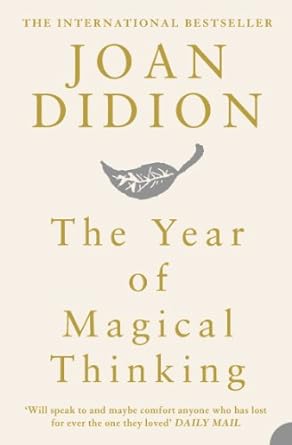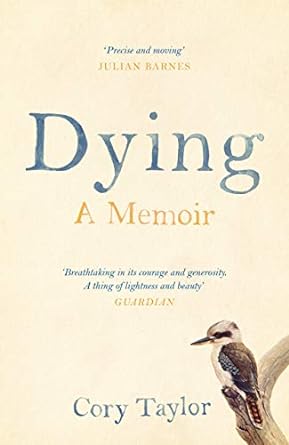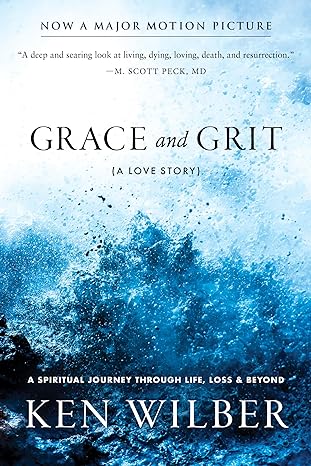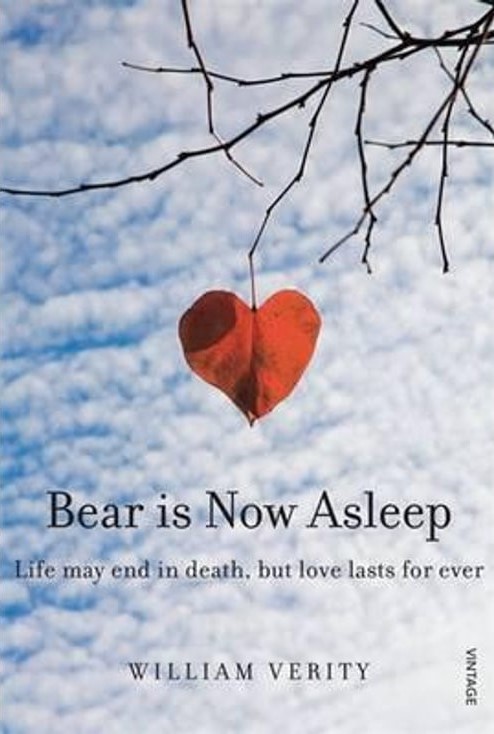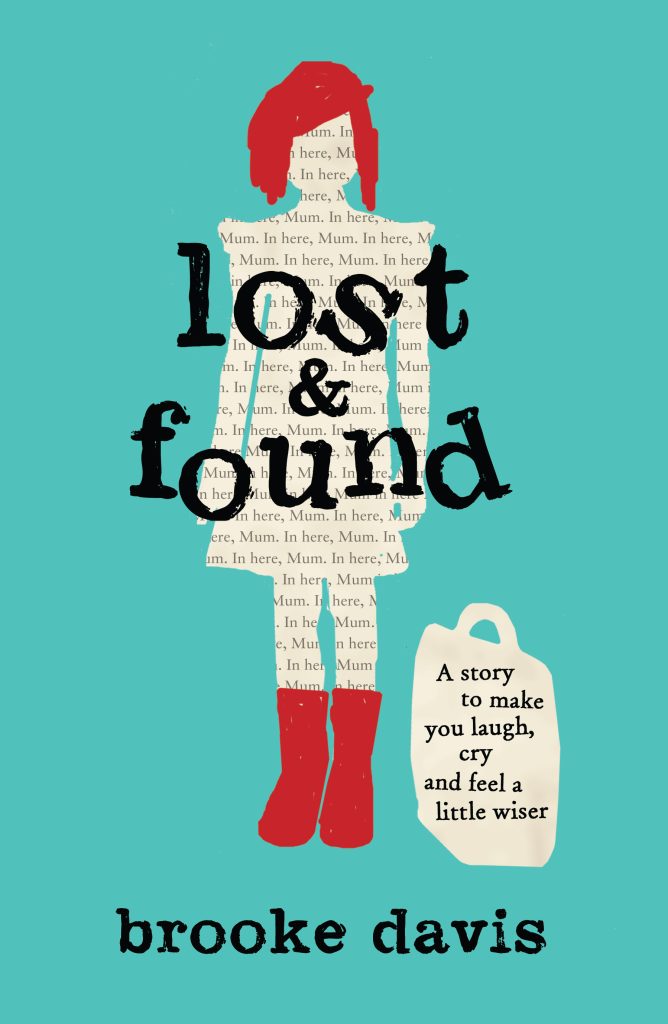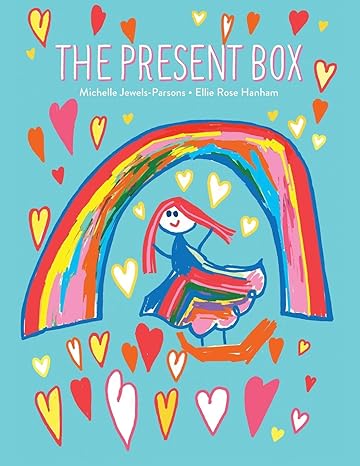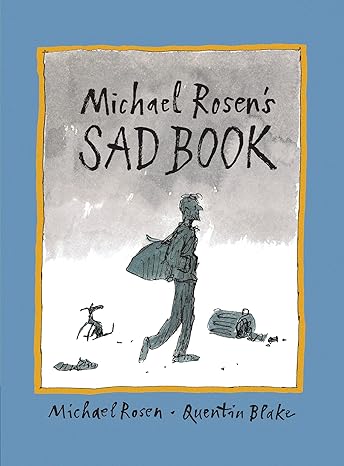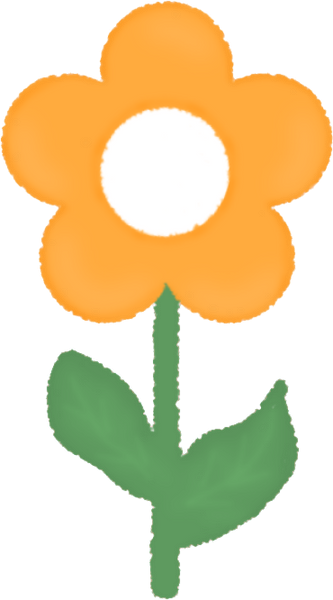
Resources
This resources list is a growing collection of my favourite things gathered over many years in my quest to stay up-to-date. I come here often to quickly find stuff I use a lot in my community work. I hope it proves useful for you as well. Maybe create a bookmark.
Community Projects
Eco Coffin Project
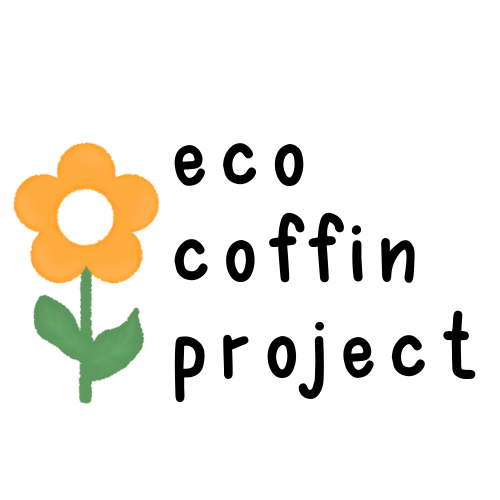
The Eco Coffin Project is a biennial community program. The program includes 3 full-day workshops in March followed by decorating an eco-coffin or making a shroud during April to July which becomes part of our group exhibition in August for the South Australian Living Arts Festival (SALA).
The aims of the Eco Coffin Project are to:
- Spark conversations, curiosity and acceptance of our mortality
- Increase our death literacy for informed end-of-life planning
- Use creative practices to become comfortable with death
- Raise awareness of eco-friendly options like natural burial
- Become more enlivened and grateful for every day
Register your interest to be part of the next one.
Death Cafe

Death Cafe is a volunteer-run social franchise that commenced in the UK in 2011 and has spread around the world. The Death Cafe model was developed by Jon Underwood based on the ideas of Bernard Crettaz. Since Jon’s death in 2017, his Mum (Sue Barsky Reid) and Sister (Jools Barsky) run the organisation. At a Death Cafe people drink tea, eat cake and discuss death with no agenda, objective or theme. The aim is to increase awareness of death to help people make the most of their (finite) lives.
I have been facilitating Death Cafes since 2014. Read some of my blogs below to get an idea of what happens at a Death Cafe:
Coffin Club
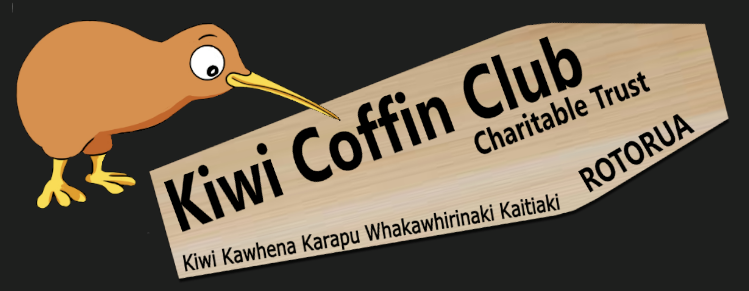
“Makers of fine affordable underground furniture“
People join a Coffin Club to make and decorate an affordable coffin for themselves or for someone else. The original Coffin Club was founded in Rotorua in 2010 by former palliative care nurse Katie Williams, 77. Katie launched the Kiwi Coffin Club in her garage, with no tools, no volunteers and no idea how to construct a coffin. But after a host of handy local men came on-board – she calls them “the darlings” – the club took off, and soon moved to a larger facility to cater to its swelling numbers. Since then the model has spread around New Zealand and to Australia.
SOURCES: The Guardian | Original Coffin Club
Community Coffin Club, Tasmania
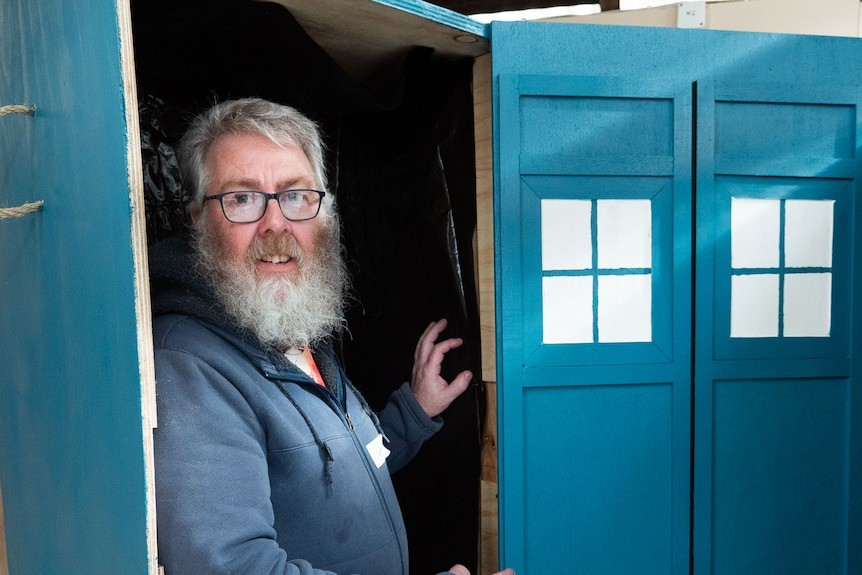
The Community Coffin Club in Ulverstone Tasmania was established by the wonderful social justice advocate Lynne Jarvis in 2016. People come together to increase their death literacy, enjoy a cuppa and support each other build and decorate their coffins, each one a personal reflection of what is important in their lives. I visited the Coffin Club in 2023 and got to meet some of the beautiful community. Justin Martin proudly showed me his coffin which was around the theme of Dr Who’s Tardis (pictured: source). Vale Justin who died in November 2023, it was an honour to meet you. Learn more on their thriving Facebook page.
Dying To Know Day
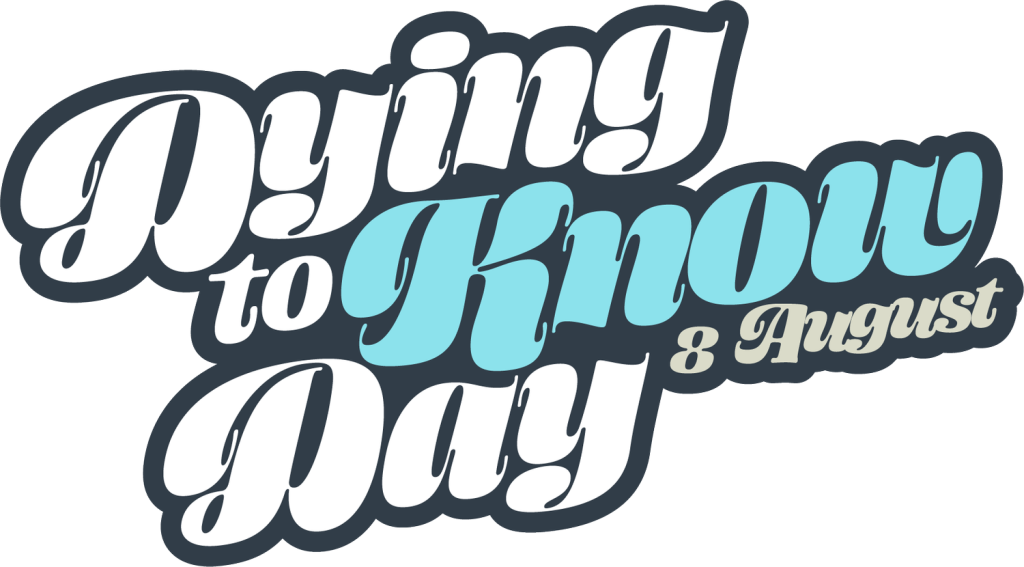
Dying to Know Day (D2KD) is an annual campaign in August that empowers Australians to be advocates for their own end-of-life planning by either hosting or attending an event that raises awareness for end-of-life considerations and choices. D2KD launched in 2012 as an initiative of Dr Kerrie Noonan and The Groundswell Project.
I have had the honour of facilitating a few Dying To Know Days events. Read the blogs below to get an idea of what happens at a Dying To Know Day event, keeping in mind each one is unique:
Before I Die Wall
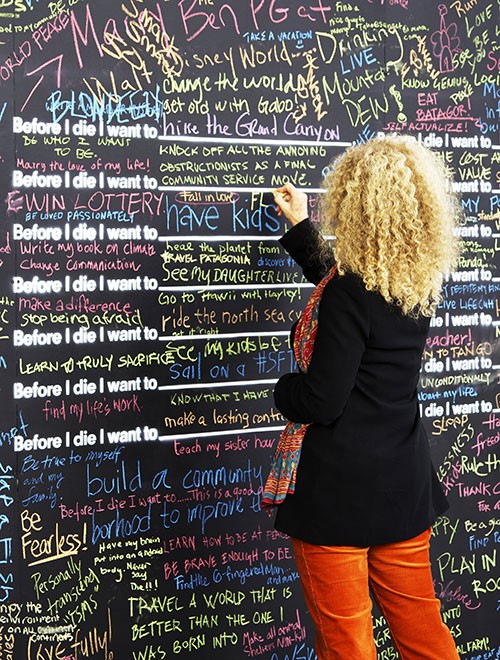
Before I Die is a global art project that invites people to reflect on death and share their personal aspirations in public by writing their response in chalk to the prompt: Before I die I want to … Originally created by Candy Chang in New Orleans after the death of a loved one, there are now over 5,000+ walls around the world. Listen to Candy’s TEDtalk.
Thanks to a Gawler Council Community Grant, I created a mobile Before I Die wall trailer. The blogs below share some of it’s outings:
Death Over Dinner
Études offers comprehensive consulting, management, design, and research solutions. Our vision is to be at the forefront of architectural innovation, fostering a global community of architects and enthusiasts united by a passion for creating spaces. Every architectural endeavor is an opportunity to shape the future.
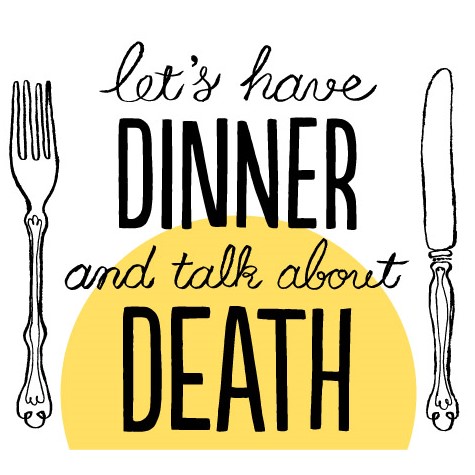
Death Over Dinner was created in 2013 as an invitation offering a simple set of tools to help families and friends address the basic human fact that we are all, at some point, going to die. We suffer more when we don’t communicate our wishes, we suffer less when we know how to honor the wishes of our loved ones. As we build greater comfort and literacy around this important topic, every single one of us wins.
Why would I have this conversation over dinner?
The dinner table is the most forgiving place for difficult conversation. The ritual of breaking bread creates warmth and connection, and puts us in touch with our humanity. It offers an environment that is more suitable than the usual places we discuss end of life.
I have been involved with facilitating a few Death Over Dinner events. The blogs below share some of the stories:
Paper Garments for the Grave
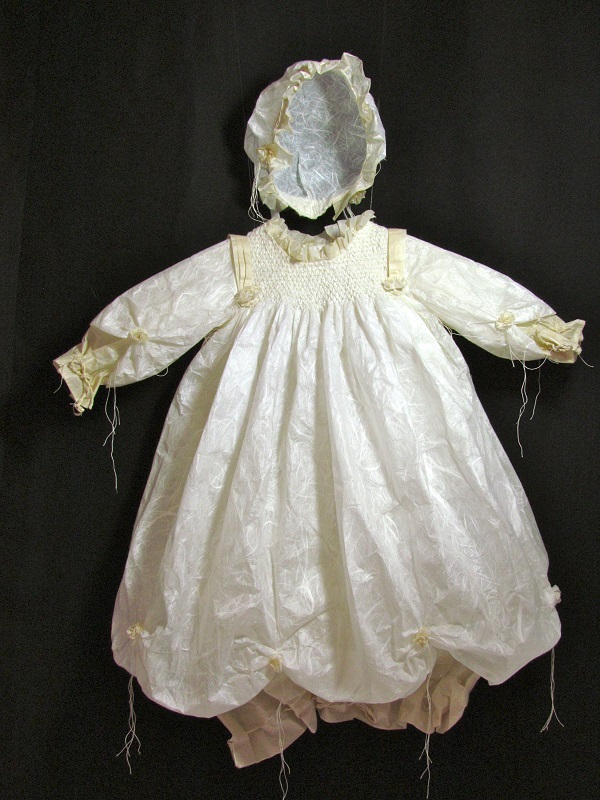
Paper garments for the grave was an arts based project in Burnie Tasmania in 2015. Ten paper artists designed and made paper garments following six months of conversations, exploring community, death, dying loss and grief. Crochet is my passion so the exhibit that grabbed my attention was the crocheted shroud made of recycled paper turned into yarn called Fibre of my Being by Pam Thorne. Another was Anzara Clark’s poignant bitter-sweet exhibit Christening Shroud (pictured, source) made of paper in honour of her grandson, Cody, who died in utero 10 years previously. Meet the artists and see their work in the short film [15 mins]
Death Letter Project
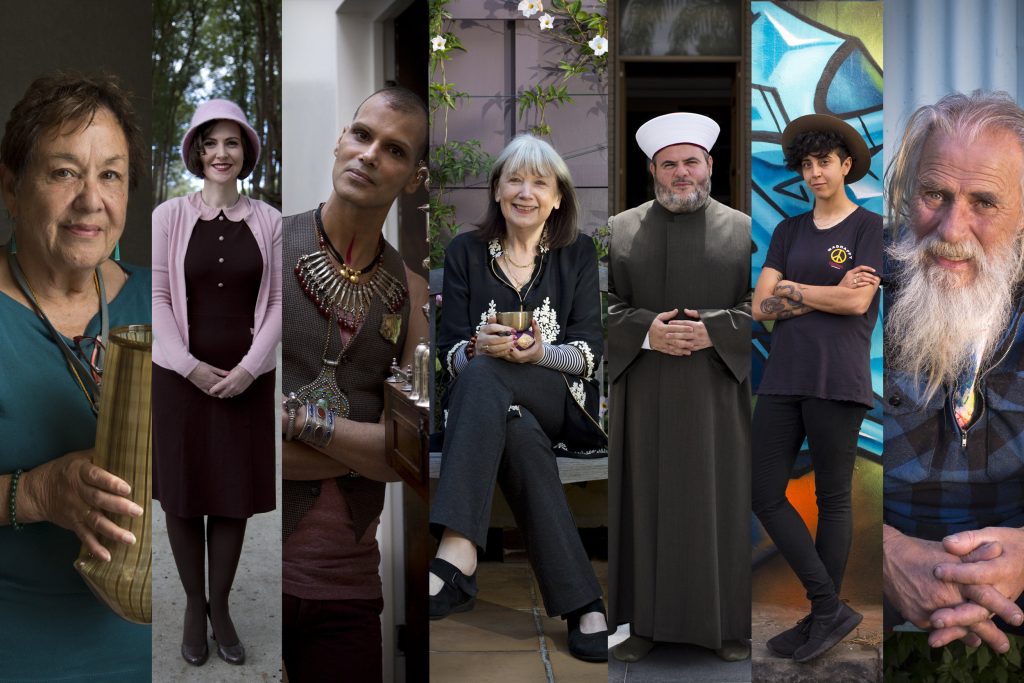
The Death Letter Project (2014) was conceived as part of a PhD research project by Tina FiveAsh. She invited 50 Australians to handwrite a letter, responding to: What is death? and what happens when we die? The letters, paired with photographic portraits of each contributor, inspire fresh thought, contemplation, re-imagining and conversation about death – undoubtedly the most mystifying, feared, and significantly undiscussed human experience in modern western society. Watch the video to learn more [20 mins]
Reflected Legacy Project
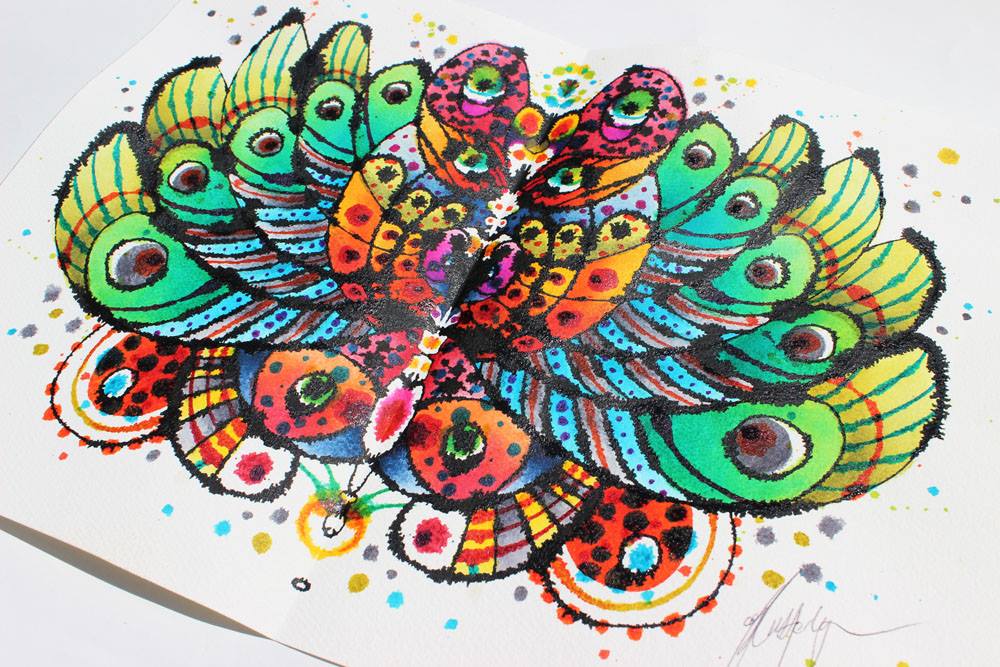
The Reflected Legacy project is an initiative of The Groundswell Project. This arts and health project at Liverpool Hospital records the life stories of dying patients through a unique art experience. The process transforms a grey hospital ward with colour and conversation, and captures the life stories of people who are in the final stages of their lives, in beautiful visual artworks (pictured) and sound recordings. Since the program’s launch in 2015 the medical team have seen a number of significant patient outcomes including improvements in mood, appetite, sleep patterns and pain management as well as consistently positive feedback from families and staff. Watch the short video to see the art process unfold [00:06:45]
Threshold Choir
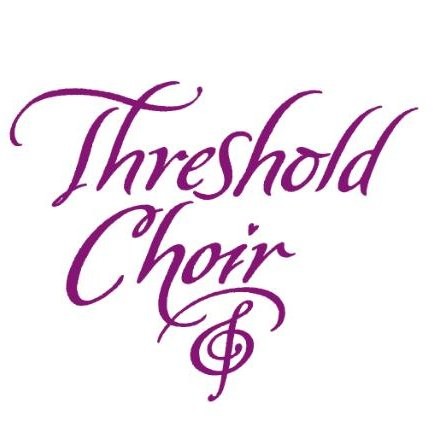
Threshold Choir are groups of 2 to 4 people who visit the bedsides of people who are dying and sing to them in capella. They volunteer their service – no fee. The practice began in California and has spread to 130 communities around the world. In Australia there are Threshold Choir groups in Adelaide, Melbourne, Brisbane, Ballina and Sydney.
Loose Ends Project
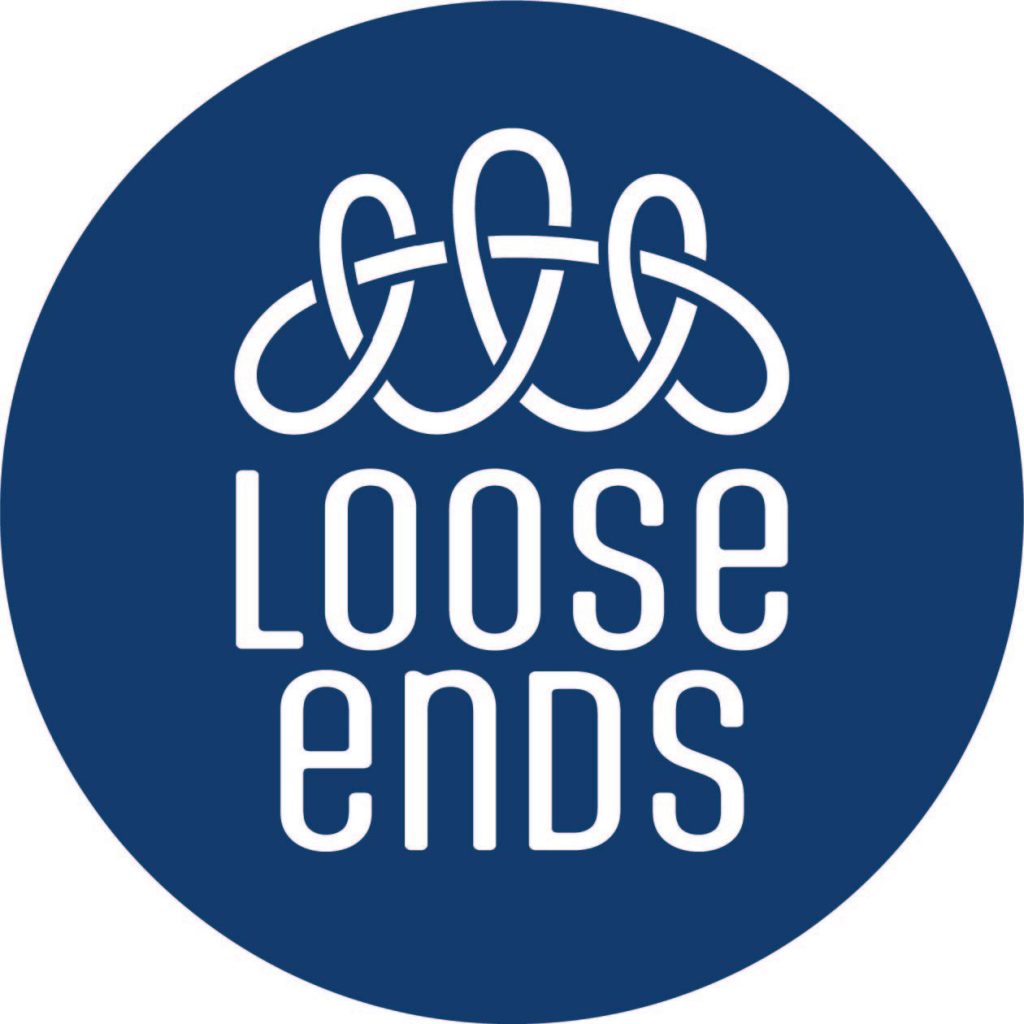
The Loose Ends Project aims to ease grief, create community, and inspire generosity by matching volunteer handwork finishers with projects people have left unfinished due to death or disability.
Books
What’s possible now
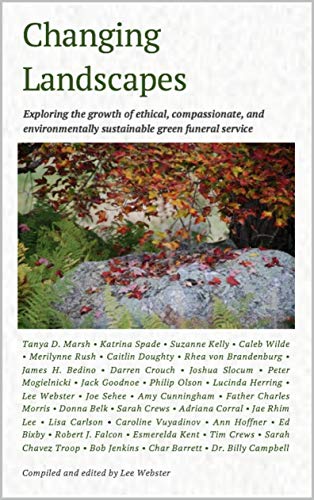
Changing landscapes: Exploring the growth of ethical, compassionate, and environmentally sustainable green funeral practices
Lee Webster
Createspace Independent Publishing Platform, 2017
292 pages
ISBN: 978-1542529112
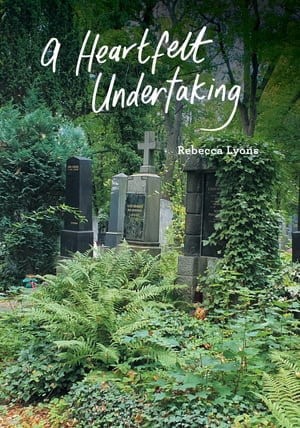
A heartfelt undertaking
Rebecca Lyons
Publisher: Solace End of Life Services, 2022
270 pages
ISBN: 978-0645408508
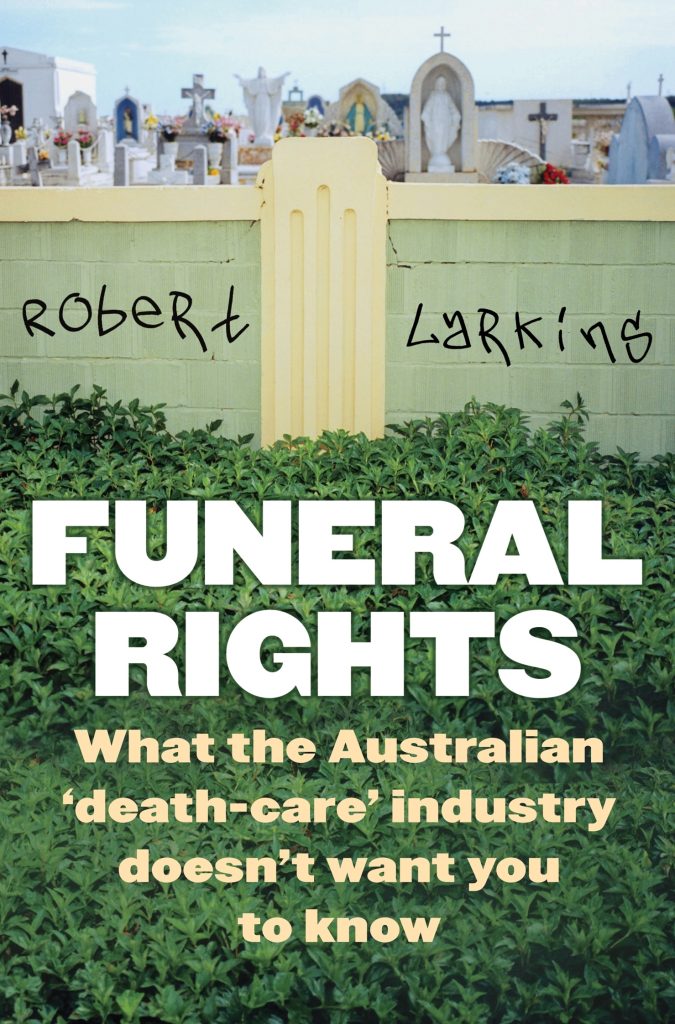
Funeral rights
Robert Larkins
Penguin Group Australia, 2007
256 pages
ISBN: 9780670071081
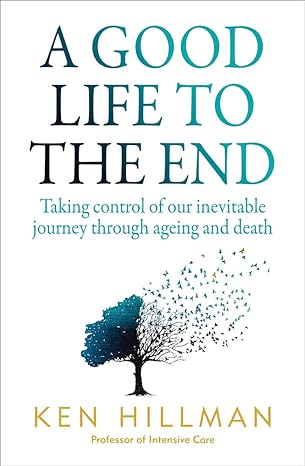
A good life to the end: Taking control of our inevitable journey through ageing and death
Ken Hillman
Allen & Unwin, 2017
304 pages
ISBN: 978-1760294816

What death means now: Thinking critically about dying and grieving
Tony Walter
Policy Press, 2017
136 pages
ISBN: 9781447337362
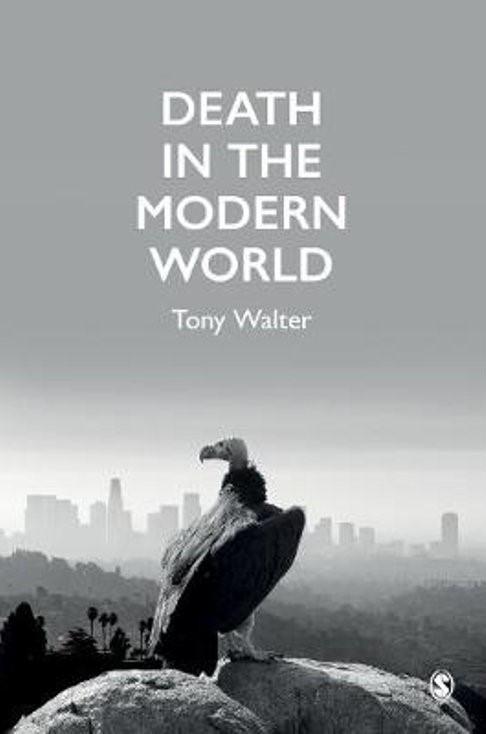
Death in the modern world
Tony Walter
Sage Publishing, 2020
312 pages
ISBN: 9781526402943
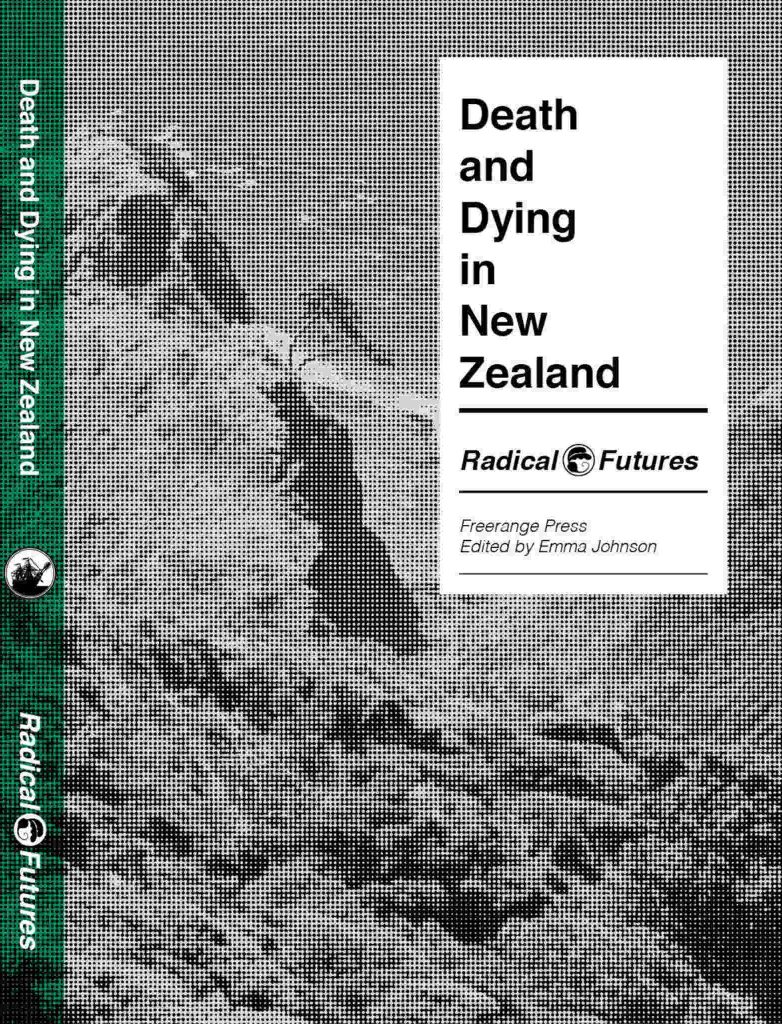
Death and dying In New Zealand
Steve Braunias, Ruth McManus, Marcus Elliott
Freerange Press, 2018
160 pages
ISBN: 9780473447755
Interesting reads
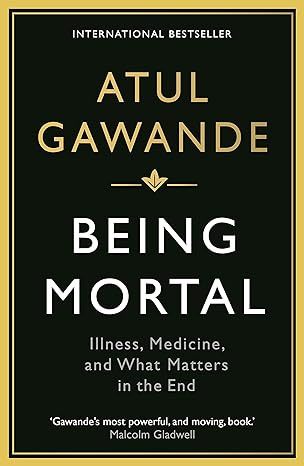
Being mortal: Illness, medicine and what matters in the end
Atul Gawande
Profile Trade, 2015
304 pages
ISBN: 978-1846685828
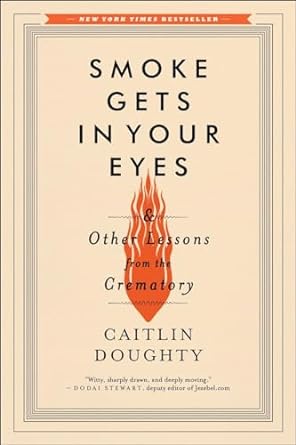
Smoke gets in your eyes: And other lessons from the crematory
Caitlin Doughty
W. W. Norton & Company, 2015
272 pages
ISBN: 978-0393351903
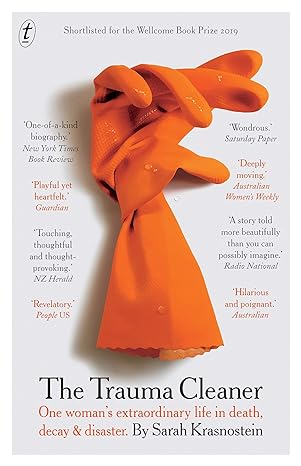
The trauma cleaner: One woman’s extraordinary life in death, decay & disaster
Sarah Krasnostein
Text Publishing, 2019
272 pages
ISBN: 978-1925603897
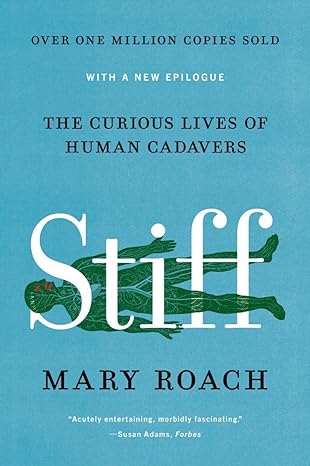
Stiff: The curious lives of human cadavers
Mary Roach
W. W. Norton & Company, 2021
320 pages
ISBN: 978-0393881721
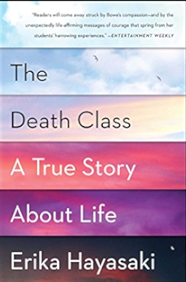
The death class: A true story about life
Erika Hayasaki
Simon & Schuster, 2014
288 pages
ISBN: 9781451642858
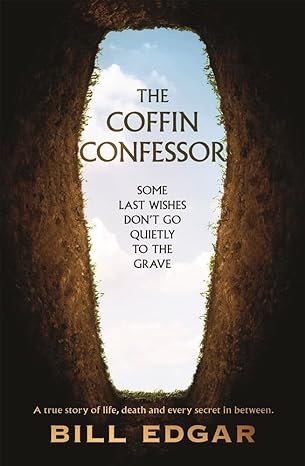
The coffin confessor
William Edgar
Penguin, 2021
304 pages
ISBN: 978-1761042959
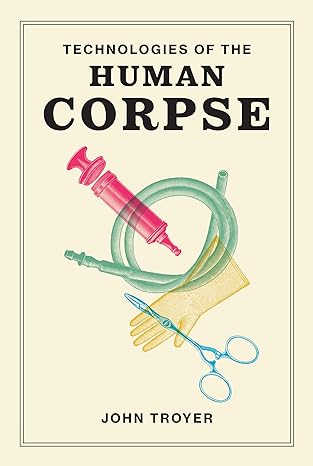
Technologies of the human corpse
John Troyer
MIT Press, 2021
272 pages
ISBN: 978-0262542319
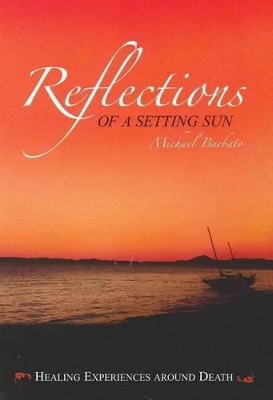
Reflections of a setting sun: Healing experiences around death
Michael Barbato
Publisher: Michael Barbato, 2009
200 pages
ISBN: 9780646514567
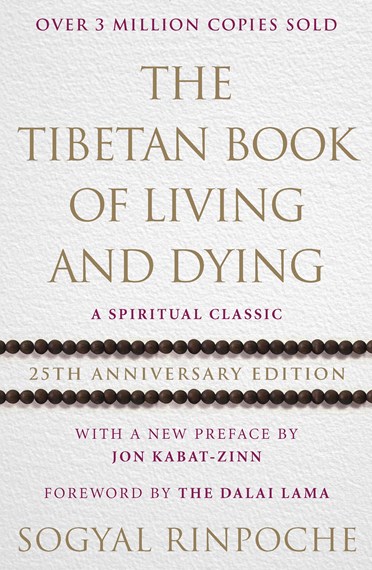
The Tibetan book of living and dying: A spiritual classic from one of the foremost interpreters of Tibetan Buddhism to the West
Sogyal Rinpoche
Ebury Publishing, 2012
464 pages
ISBN: 9781448116959
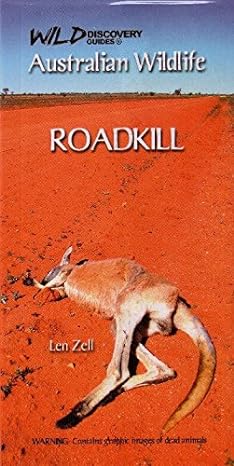
Australian wildlife: Roadkill
Len Zell
Wild Discovery Guides, 2006
102 pages
ISBN: 9780975718421
Planning guides
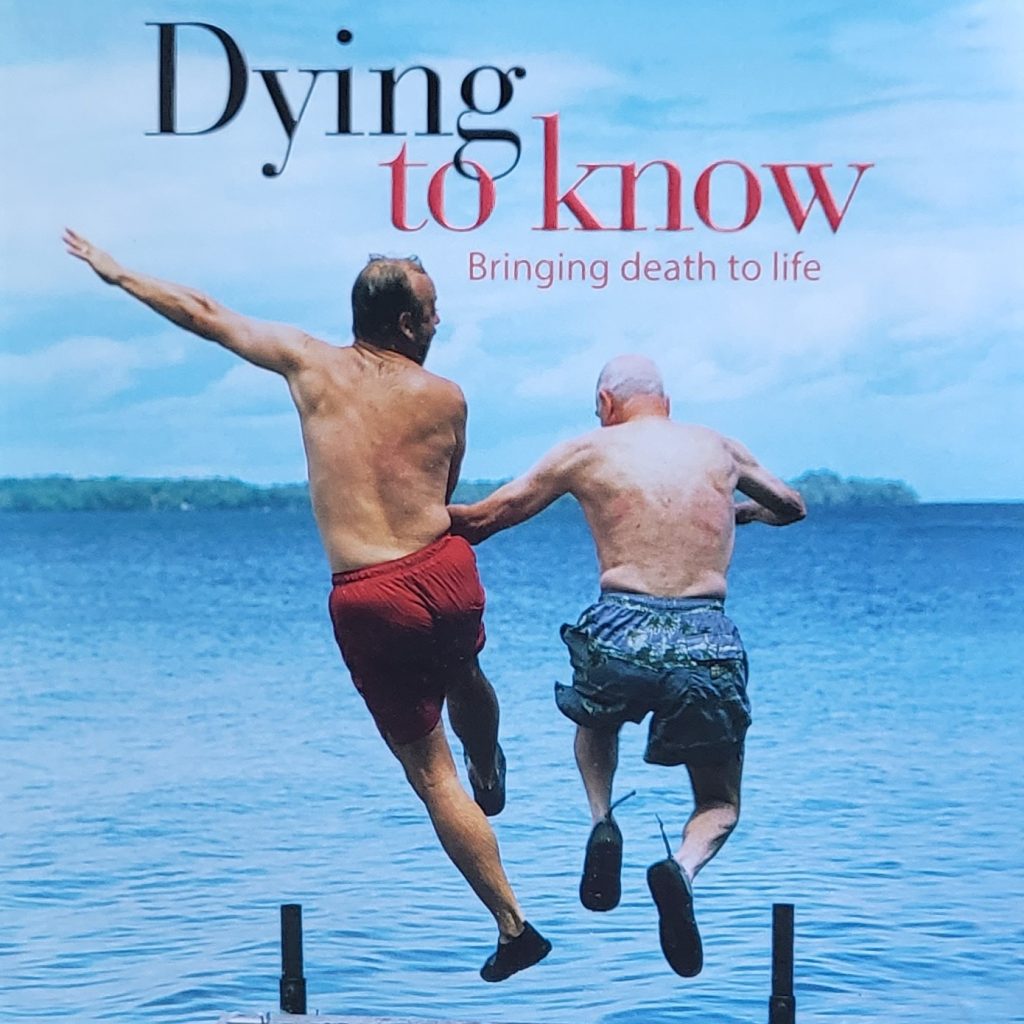
Dying to know: A guide for everyone alive
Andrew Anastasios
Publisher: Hardie Grant Books, 2007
112 pages
ISBN: 1740665538
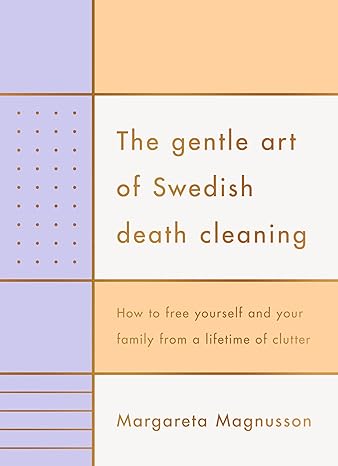
The gentle art of Swedish death cleaning
Margareta Magnusson
Scribe Publications, 2017
160 pages
ISBN: 1925322335

The Death Doula’s Guide to Living Fully and Dying Prepared
Francesca Arnoldy
New Harbinger Publications
200 pages
ISBN-13: 978-1648481369
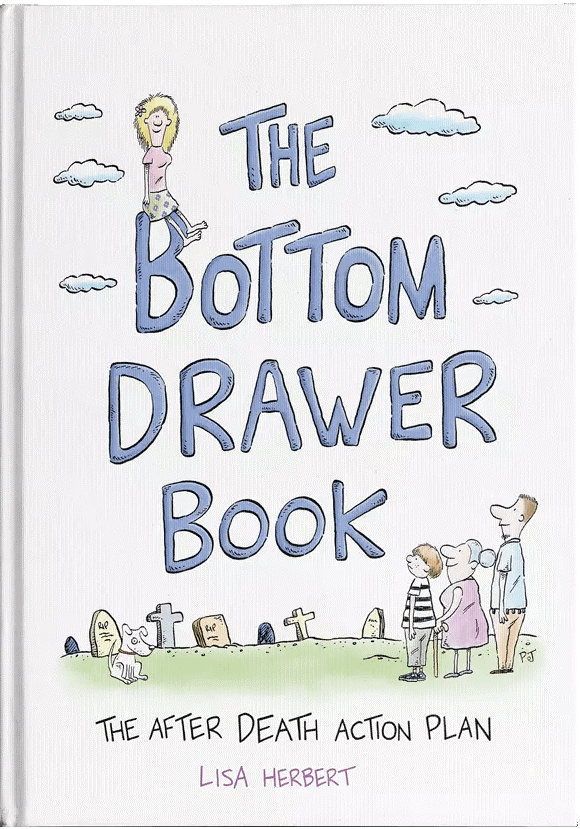
The bottom drawer book: The after death action plan
Lisa Herbert
Herbie and the Bandit Productions
pages
ISBN:
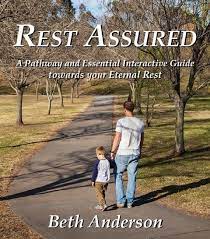
Rest assured: A pathway and interactive guide to your eternal rest
Beth Anderson, Trish Tracey
Publisher: CP Books, 2018
160 pages
ISBN: 9780646469096
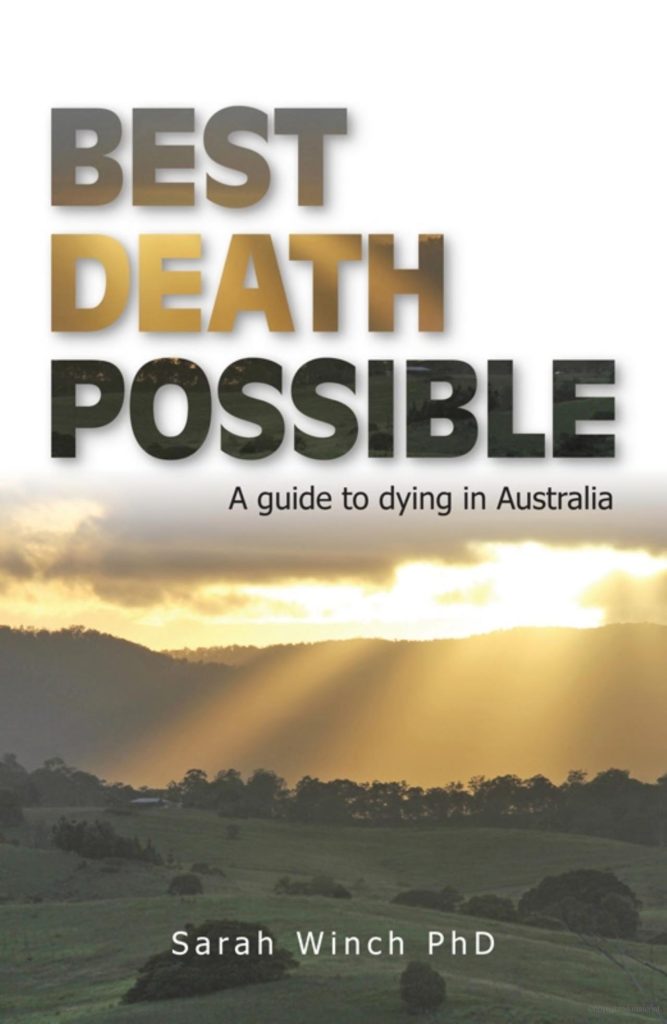
Best possible death: A guide to dying in Australia
Sarah Winch, PhD
Publisher: Pamela Higgs, 2013
120 pages
ISBN: 9781922219695
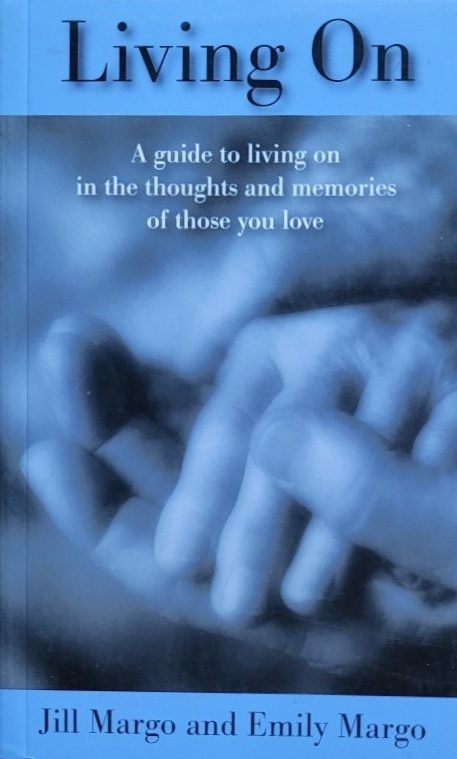
Living on: A guide to living on in the thoughts and memories of those you love
Jill Margo, Emily Margo
Brandl & Schlesinger, 2008
124 pages
ISBN: 9781876040918
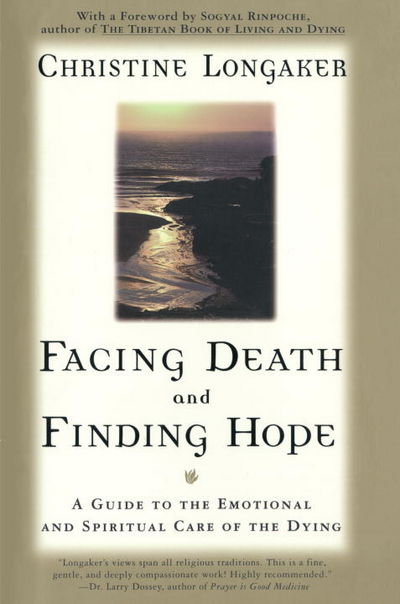
Facing death & finding hope: A guide to the emotional and spiritual care of the dying
Christine Longaker
Main Street, 1998
284 pages
ISBN: 9780385483322
History of cemeteries
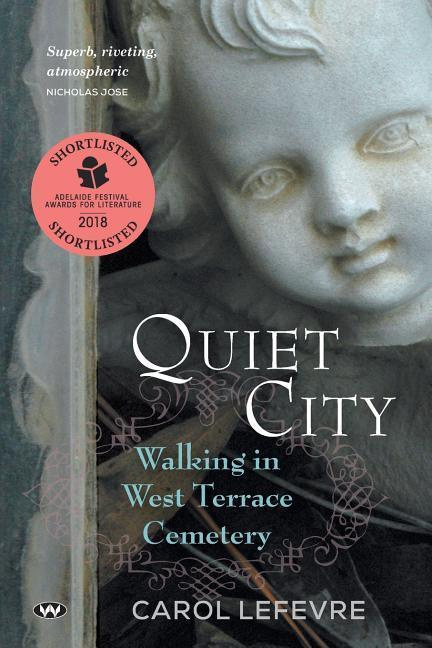
Quiet city: Walking in West Terrace Cemetery
Carol Lefevre
Wakefield Press, 2013
344 pages
ISBN: 9781743053874
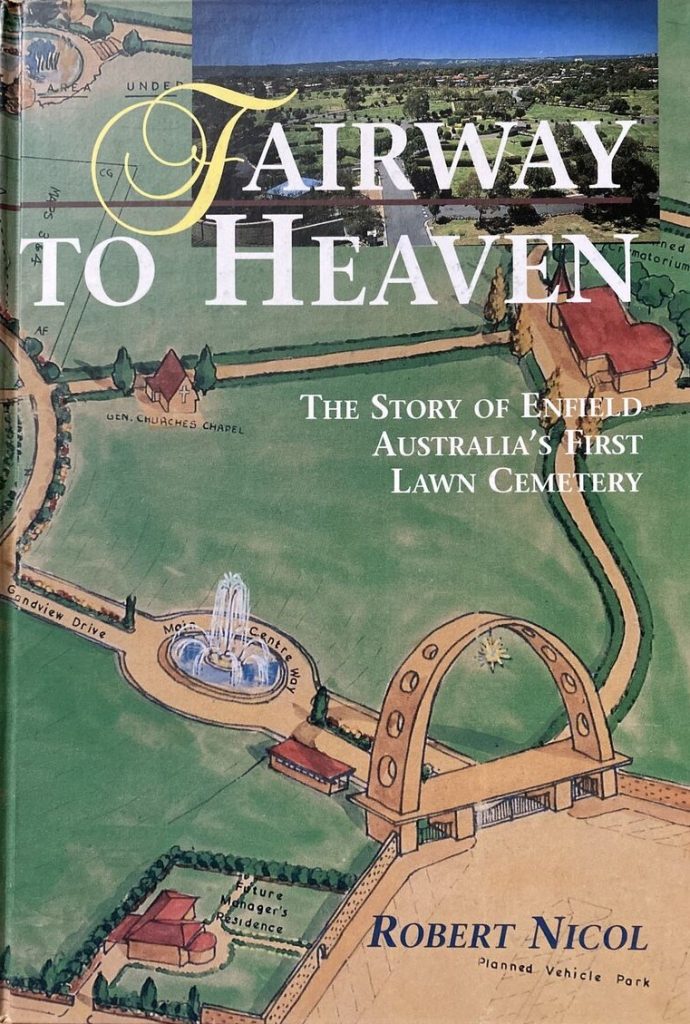
Fairway to heaven: The story of Enfield, Australia’s first lawn cemetery
Robert Nicol
Publisher: Enfield General Cemetery Trust, 1997
212 pages
ISBN: 0646329448
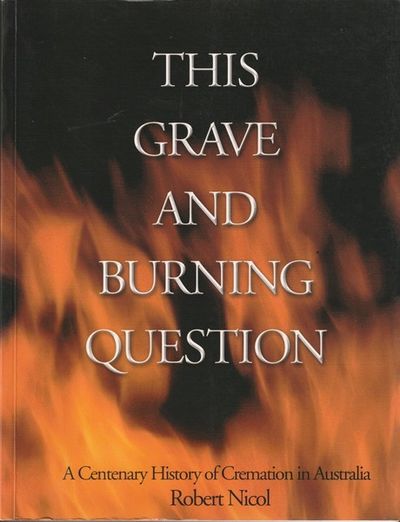
This grave and burning question: A centenary history of cremation in Australia
Robert Nicol
Publisher: Adelaide Cemeteries Authority, 2003
332 pages
ISBN: 0646426060
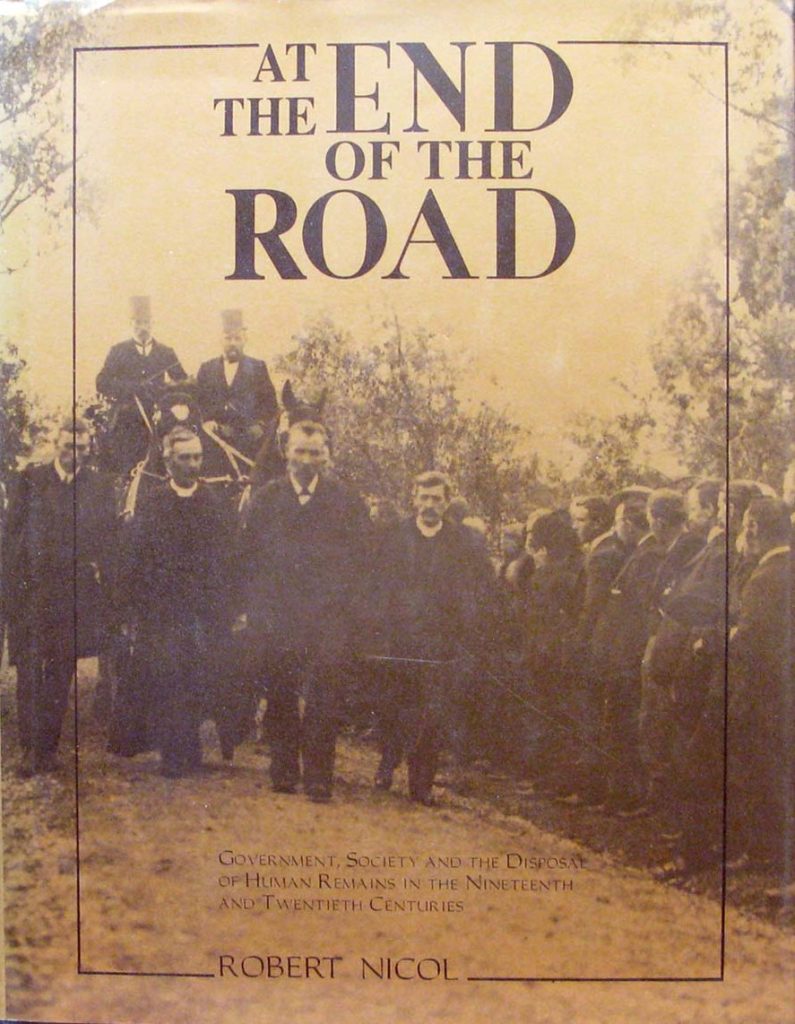
At the end of the road: Government, society, and the disposal of human remains in the nineteenth and twentieth centuries
Robert Nicol
Allen & Unwin, 1994
464 pages
ISBN: 1863737197
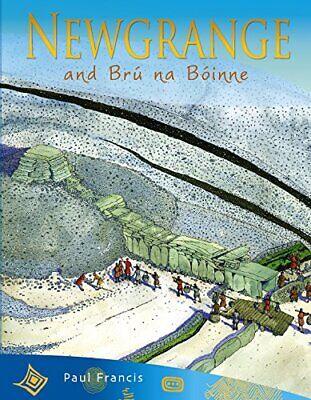
Newgrange and Brú na Bóinne
Paul Francis
Charial Publishing, 2017
64 pages
ISBN: 978099261431
Memoir
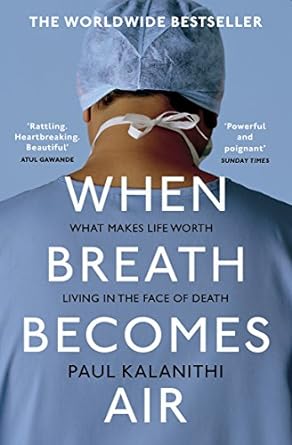
When breath becomes air: The ultimate moving life-and-death story
Paul Kalanithi
Random House UK, 2017
256 pages
ISBN: 9781784701994
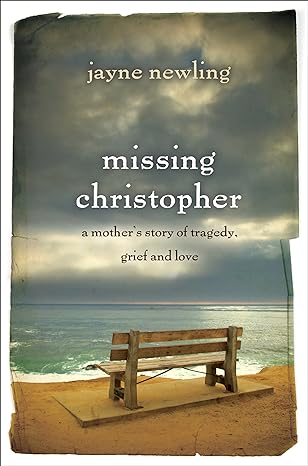
Missing Christopher: A mother’s story of tragedy, grief and love
Jayne Newling
Allen & Unwin, 2014
298 pages
ASIN: B00J4ZNO9Q
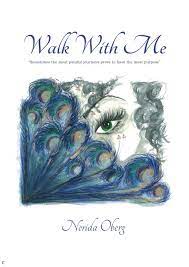
Walk with me: Sometimes the most painful journeys prove to have the most purpose
Nerida Oberg
Mistymoon Mountain, 2011
243 pages
ISBN: 9780987055804
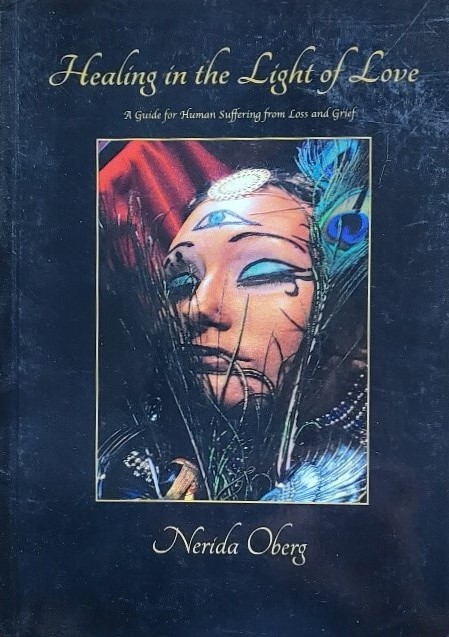
Healing in the light of love: A guide for human suffering from loss and grief
Nerida Oberg
2012
Mistymoon Mountain, 2012
123 pages
ISBN: 9780987055897
Children’s books
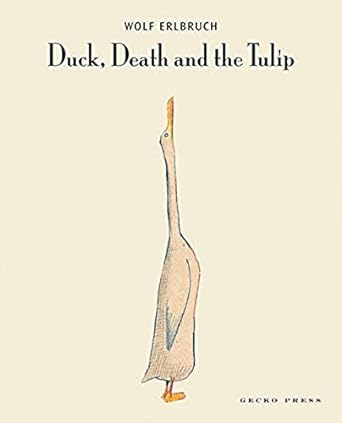
Duck, death and the tulip [< 7years]
Wolf Erlbruch
Gecko Press – NZ, 2009
38 pages
ISBN: 978-1877467172
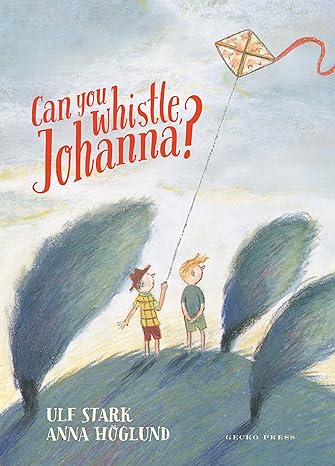
Can you whistle, Johanna?: A boy’s search for a Grandfather [8-12 years]
Ulf Stark
Gecko Press – NZ, 2020
72 pages
ISBN: 978-1776573257
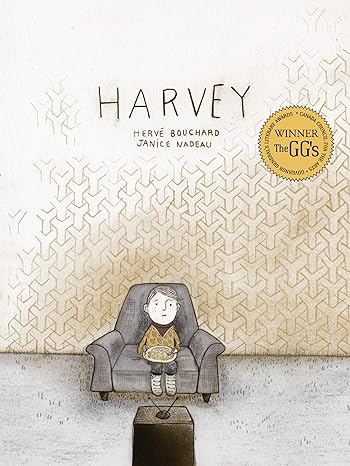
Harvey: How I became invisible [10-12 years]
Herve Bouchard
Groundwood Books, 2017
168 pages
ISBN: 978-1773060057
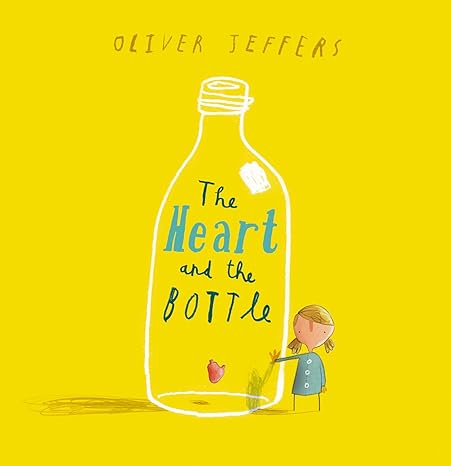
The heart and the bottle [5-8 years]
Oliver Jeffers
Harper Collins, 2010
32 pages
ISBN: 9780007182343
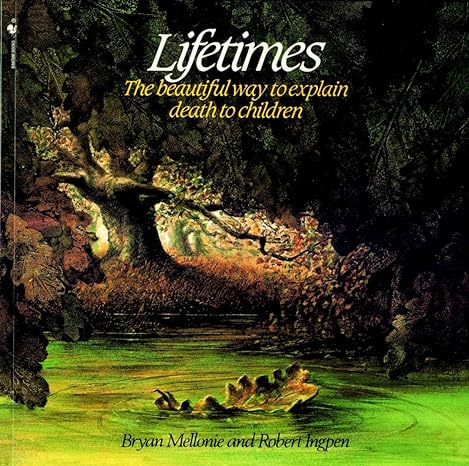
Lifetimes: The Beautiful Way to Explain Death to Children [5-8 years]
Bryan Mellonie
Bantam, 1983
40 pages
ISBN: 978-0553344028
Book list at Order of the Good Death
Podcasts
The Adventures of Memento Mori
The Adventures of Memento Mori: A Skeptic’s Guide for Learning to Live by Remembering to Die, is a podcast exploring the science, mysticism, culture, and mystery of death. Satirical and philosophical, the show follows host, D.S. Moss, as he attempts to reconcile his own impermanence and live a more meaningful life. Problem is, life keeps getting in the way.
Better Off Dead
Better Off Dead: Andrew Denton investigates the stories, moral arguments and individuals woven into discussions about why good people are dying bad deaths in Australia. He explores the stories, moral arguments and individual experiences behind voluntary assisted dying law reform.
What About Death!?
What About Death!? is a podcast exploring the many and varied experiences and perceptions of dying and death. The podcast is an initiative of Karuna Hospice Services. Tsultrim, an Australian Buddhist nun in the Tibetan tradition, talks to people from around Australia and the world, listening to their insights and views and bringing this important subject out of the dark and into a place where we consider… everything you wanted to know about death but were afraid to ask!
Thursdays@3
Thursdays at 3 is a podcast initiative of Palliative Care Australia focussing on having conversations with people living and working at the end of life.
Death and Dying
Death and Dying podcast is a collection of stories aim to break the taboo of talking about death and dying, through sharing the real experiences of West Australians who have experienced it first-hand. Moving, raw and at times, astounding, Death and Dying is a new collection of stories recorded by the Perth-based arts and cultural organisation, Centre for Stories.
The Art of Dying Well
The Art of Dying Well podcast aims to make death and dying something we can talk about openly without discomfort or fear. Presented by James Abbott in conversation with a guest on a key topic related to the Art of Dying Well, taking in everything from being at the bedside of a dying loved one, to receiving a terminal diagnosis. Coping with grief, bereavement, death, dying, and much more are all under discussion.
Getting Comfortable with Death.
Getting Comfortable with Death. Hilary Harper of ABC Radio National’s Life Matters interviews Margaret Rice, author of A Good Death: A compassionate and practical guide to prepare for the end of life and Sally Tisdale author of Advice for Future Corpses and Those Who Love Them
What Building your own Coffin teaches you about life, death and meaning
What Building your own Coffin teaches you about life, death and meaning. Podcast No 443: an Art of Manliness podcast
Sex and Death – ABC Radio Days Like These, Elizabeth Kulas
Sex and Death – ABC Radio Days Like These, Elizabeth Kulas. Emma Jane Holmes is a funeral director by day, but when night falls, her alter ego appears. Emma takes our lead reporter Pat Abboud behind the closed doors of a mortuary, to reveal how the death care industry is dealing with the pandemic and letting us in on her secret double life.
‘It’s not what you see in the movies’: Doctor demystifies dying
In an interview with Dr. Brian Goldman, host of White Coat, Black Art, the British doctor shared insight into exactly how we die, and why it’s important that health-care workers have frank conversations with patients and their families about death.
The inevitable: death, dying and mortality
In this episode, Charlotte speaks frankly about the process of dying, common thoughts and feelings about death, and mortality vulnerabilities, and why confronting some of this can be helpful.
Living with Dying
Living with dying. The thing about advanced cancer is that it does make you think about mortality. While some people can live for many years with advanced cancer, others know they may have only months or weeks left. If that is the case for you, how can you make the most of whatever time you have? And how do other people cope with the fact that they are dying? In this episode of The Thing About Advanced Cancer, Julie sits down with Dr Megan Best, a palliative medicine specialist, to tackle these questions, and more.
Life, Love and Loss
Raw Voices Podcast #21 – Death Cafe (with Jon Underwood)
In this episode, Jon Underwood, founder of the Death Cafe concept, explains us his radical idea which has generated a growing movement, with more than 2000 gatherings across 31 countries so far. 12 June 2015.
Ep. 97 Tribute to Jon Underwood, Founder of the Death Cafe Movement
This episode is dedicated to the memory of Jon Underwood who died suddenly and unexpectedly at the age of 44 on June 27, 2017. IThis is an interview with Jon from 2015 about Death Cafe, why he started the movement, and his dreams of creating an actual Death Cafe in London.
Dying to Talk
Podcast episode on Death Cafe. Thousands of Death Cafés have popped up in countries across the globe, challenging people to open up about the deceased and their own thoughts and fears about dying. Cafes are often over subscribed with organisers having to turn away individuals from sell out events. Julian Keane visits some of these Death Cafés to explore if a key part of life should be preparing for death. He explores how people across the world deal with death whilst they’re living, and if there’s really a need for the conversation. Julian also meets sociologist Bernard Crettaz. He began the concept of Café Mortel (Death Café) at an exhibition called La mort à vivre (Death for life) in his Geneva museum. Bernard shares more about his work, the theories behind his Death Café concept and how he feels knowing the world is embracing his concept.
We Need to Talk About Death
Episodes. BBC Radio 4 series. 9 episodes.
A practical guide to dealing with death
A practical guide to dealing with death. Join Richelle Hunt, co-host from ABC Shepparton Nic Healey, and a range of guests, as they explore a practical guide to dealing with the death of a loved one. ABC Radio Melbourne. Broadcast Wed 7 Dec 2022 at 10:30am
Conversations with Richard Fidler about death
Dealing with Death, Dying & Grief
Podcast: Conscious Convos. Episode EP17. Dealing with Death, Dying & Grief with Christina Reeves
The host interviews a Death Doula who speaks about grief, the process of dying, dying at home and the healing process after. Both the host and guest share their own experiences with grief and why this topic was so important for them to discuss here. There’s some helpful tools and guidance to help with your own grief journey.
Welcome to DeathTech: Navigating the business of death online
EPISODE. It may sound very biblical, but in the midst of life, we are in death. Still, death can be a difficult topic to broach. Today though, online spaces are providing more comfortable places for people to talk about death. Businesses like AddendoVault, and community groups such as Groundswell are providing choices about how we might mourn the loss of someone we held dear, as well as get our affairs in order before we die.
Guests:
- Tabitha Robb, founder of death planning website AddendoVault
- Dr Bjørn Nansen, member of the DeathTech research team at Melbourne University
- Bec Lyons, End-of-life doula and independent funeral planner
The stuff of death and the death of stuff
EPISODE. Cultural anthropologist Dr Hannah Gould researches death and discarding – looking at spirituality and how COVID-19 is changing the way we deal with the dead
Podcast list at Order of the Good Death
TED talks
How I made friends with reality | Emily Levine | TED
With her signature wit and wisdom, Emily Levine meets her ultimate challenge as a comedian/philosopher: she makes dying funny. In this personal talk, she takes us on her journey to make friends with reality — and peace with death. Life is an enormous gift, Levine says: “You enrich it as best you can, and then you give it back.”
What really matters at the end of life | BJ MiIler | TED
At the end of our lives, what do we most wish for? For many, it’s simply comfort, respect, love. BJ Miller is a hospice and palliative medicine physician who thinks deeply about how to create a dignified, graceful end of life for his patients. Take the time to savor this moving talk, which asks big questions about how we think on death and honor life.
Let’s talk about dying | Dr Peter Saul |TEDxNewy
We can’t control if we’ll die, but we can “occupy death,” in the words of Peter Saul, an emergency doctor. He asks us to think about the end of our lives – and to question the modern model of slow, intubated death in hospital. Two big questions can help you start this tough conversation.
We’re Doing Dying All Wrong | Ken Hillman | TEDxSydney
As a world leader in managing the care of very sick people, Ken Hillman’s breakthrough methods of treating critically ill patients have become the gold standard in Australia, the U.S. and Europe. His job is about keeping people alive, but he asks us to question whether that’s always a good thing.
Before I die I want to … | Candy Chang | TEDGlobal
In her New Orleans neighborhood, artist and TED Fellow Candy Chang turned an abandoned house into a giant chalkboard asking a fill-in-the-blank question: “Before I die I want to _.” Her neighbors’ answers — surprising, poignant, funny — became an unexpected mirror for the community. (What’s your answer?)
The Coffin Club: Makers of fine and affordable underground furniture | Katie Williams | TEDxAuckland
Katie Williams details the birth of The Coffin Club, a company that custom builds coffins on commission for those who are soon to be laid to rest. Katie tells stories of past clients, and how their involvement with The Coffin Club helped them prepare for death. Katie is the founder of the Kiwi Coffin Club (makers of fine and affordable underground furniture) A retired Nurse who in her career went from Midwifery, through the hoops to Palliative Care.
When I die, recompose me | Katrina Spade | TEDxOrcasIsland
What if our bodies could help grow new life after we die, instead of being embalmed and buried or turned to ash? Join Katrina Spade as she discusses “recomposition” — a system that uses the natural decomposition process to turn our deceased into life-giving soil, honoring both the earth and the departed.
Disrupting Death. A guide to dying well | Zenith Virago | TEDxByronBay
n this provocative talk, Deathwalker Zenith Virago challenges us to take back control of the process of dying from the profit-driven death industry. She has helped hundreds of people radically rethink their death journey and create experiences that are full of joy and creativity, open to discovery and in appreciation of the mystery. As Ram Dass said, “We are all just walking each other home”.
How to Live before you die | Steve Jobs | Stanford Commencement Address
Stay Hungry, Stay Foolish!
My friend Jude | Kerrie Noonan | TEDxSydney
Kerrie Noonan shares a personal and moving tribute to her friend Jude and the inspiration she draws from the manner of her passing.
My mushroom burial suit | Jae Rhim Lee | TEDGlobal
Here’s a powerful provocation from artist Jae Rhim Lee. Can we commit our bodies to a cleaner, greener Earth, even after death? Naturally — using a special burial suit seeded with pollution-gobbling mushrooms. Yes, this just might be the strangest TEDTalk you’ll ever see …
Engage with Grace | Alexandra Drane | TEDMed
Truly passionate talk about ‘Engaging with Grace” on the ‘end of life’ issue. Have you talked with the people you love? Don’t miss this brief, yet very powerful presentation from Alexandra Drane.
Older people are happier | Laura Carstensen | TEDxWomen
In the 20th century we added an unprecedented number of years to our lifespans, but is the quality of life as good? Surprisingly, yes! Psychologist Laura Carstensen shows research that demonstrates that as people get older they become happier, more content, and have a more positive outlook on the world.
Prepare for a good end of life | Judy MacDonald Johnston | TED
Thinking about death is frightening, but planning ahead is practical and leaves more room for peace of mind in our final days. In a solemn, thoughtful talk, Judy MacDonald Johnston shares 5 practices for planning for a good end of life.
What Happens As We Die? | Dr Kathryn Mannix | TEDxNewcastle
Most of us have never seen anyone die. Few have any idea what to expect as death approaches, and most have unrealistic fears about it. Kathryn wants to change that. She believes that we lost familiarity with dying over the course of the 20th century, and she wants us all to reclaim that forgotten wisdom. Her talk will explore what happens as we die, and explain how knowing more can make us all less afraid. It’s a conversation that has comforted thousands of her dying patients and de-mystified the experience of many bereaved people who attended deathbeds. Let’s be better informed, better prepared, and less afraid about death.
Why Don’t We Talk About Dying? | Dr. Kathryn Mannix | TEDxYouth@DúnLaoghaire
Dr Kathryn Mannix gives a very human explanation of ‘ordinary dying’ in a way that all generations can understand. A topic mostly avoided she has made very accessible, with this talk and her widely acclaimed books ‘With The End in Mind’ and ‘Listen’ Dr Kathryn Mannix who was a consultant in palliative care medicine for 20 years, working in hospices, patients’ own homes and a large teaching hospital, gave this additional talk to our Youth Audience. She took early retirement in 2016 to work for better public understanding of dying; this has included radio work, newspaper articles & write ‘With the End in Mind’ became an international Best Seller, was shortlisted for the Wellcome Book Prize & was The Times ‘Thought’ Book of the Year. Her second book, Listen, about tender communication, was published to critical acclaim in September 2021. She believes that by naming death, describing the process, and helping people to know what to expect, we can have honest, frank and helpful conversations that promote better planning of end of life care and reduce unnecessary and unhelpful medical complications of dying. Her hope is that we can de-medicalise dying, and give it back to everyone as a precious time to be lived as well as possible.
What the Irish wake teaches us about living and dying | Kevin Tools | TEDMed
For centuries, the Irish funeral wake has served as a time for people to grieve a life lost and celebrate a life lived, together. In this profound and lyrical talk, poet Kevin Toolis laments the fear and denial of death that characterizes increasingly individualistic societies. He reasons that living life fully means embracing our shared mortality — and offers simple ways to reconnect with your community, the people you love and even yourself.
Why Thinking About Death Helps You Live a Better Life | Alua Arthur | TED
As a death doula, or someone who supports dying people and their loved ones, Alua Arthur spends a lot of time thinking about the end of life. In a profound talk that examines our brief, perfectly human time on this planet, she asks us to look at our lives through the lens of our deaths in seeking to answer the question: “What must I do to be at peace with myself so that I may live presently and die gracefully?”
There’s a better way to die, and architecture can help | Alison Killing | TEDGlobal
In this short, provocative talk, architect Alison Killing looks at buildings where death and dying happen — cemeteries, hospitals, homes. The way we die is changing, and the way we build for dying … well, maybe that should too. It’s a surprisingly fascinating look at a hidden aspect of our cities, and our lives.
Life that doesn’t end with death | Kelli Swazey | TEDMed
In Tana Toraja, weddings and births aren’t the social gatherings that knit society together. In this part of Indonesia, big, raucous funerals are at the center of social life. Anthropologist Kelli Swazey takes a look at this culture, in which the bodies of dead relatives are cared for years after they have passed away — because relationships with loved ones don’t simply end when breathing does.
“Am I dying?” The honest answer | Matthew O’Reilly | TED@NYC
Matthew O’Reilly is a veteran emergency medical technician on Long Island, New York. In this talk, O’Reilly describes what happens next when a gravely hurt patient asks him: “Am I going to die?”
We need a heroic narrative for death | Amanda Bennett | TEDMed
Amanda Bennett and her husband were passionate and full of life all throughout their lives together — and up until the final days, too. Bennett gives a sweet yet powerful talk on why, for the loved ones of the dying, having hope for a happy ending shouldn’t warrant a diagnosis of “denial.” She calls for a more heroic narrative for death — to match the ones we have in life.
The 4 stories we tell ourselves about death | Stephen Cave | TEDxBratislava
Philosopher Stephen Cave begins with a dark but compelling question: When did you first realize you were going to die? And even more interesting: Why do we humans so often resist the inevitability of death? Cave explores four narratives — common across civilizations — that we tell ourselves “in order to help us manage the terror of death.”
Films
Coffin Club
A group of rebellious, creative Kiwi seniors give death the finger, one crazy coffin at a time. Musical and documentary unite to introduce The Coffin Club, a truly unique community organisation bringing free-spirited seniors together to construct and personalise their own low-cost coffins. Based in small town New Zealand, with over 60 active members, this group of inspirational elderly meet once a week to rejoice in life while facing the realities of death. This warm and humorous story enters a lively community of seniors who live life as if each breath was their last.
The Death Letter Project: Reflections on Mortality
The Death Letter Project (2014) was conceived as part of a PhD research project by Tina FiveAsh. She invited 50 Australians to handwrite a letter, responding to: What is death? and what happens when we die? The letters, paired with photographic portraits of each contributor, inspire fresh thought, contemplation, re-imagining and conversation about death – undoubtedly the most mystifying, feared, and significantly undiscussed human experience in modern western society. Here is a film about the project [20 mins]
Tender
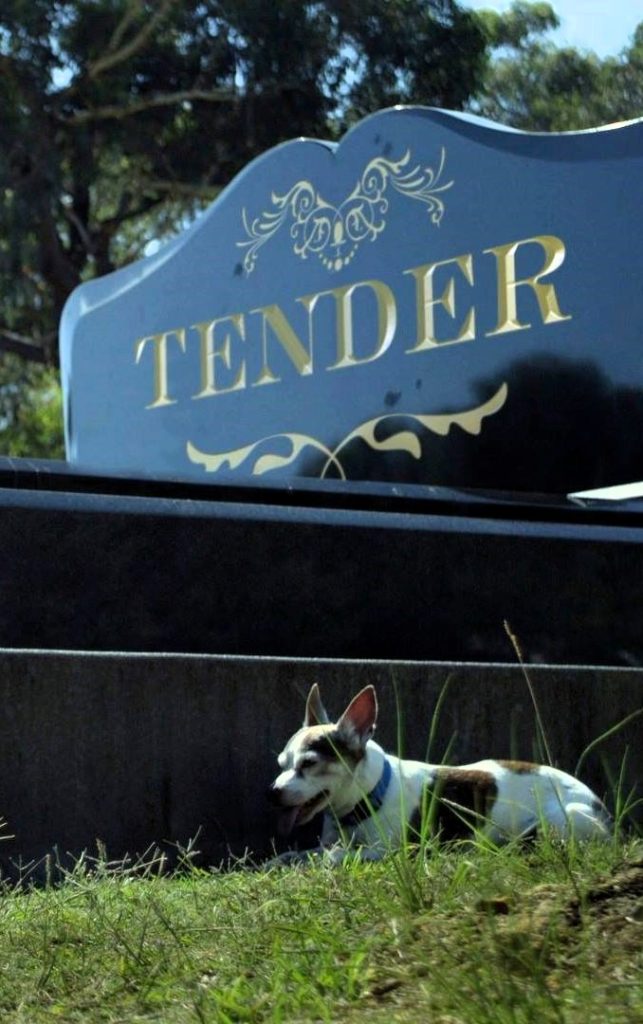
TENDER (2013) is a multi-award winning Australian documentary. A feisty and resilient community centre in an industrial seaside town is in the process of setting up a community-based funeral service when they are suddenly faced with the challenge of caring for one of their own.
IMDB rating: 7.7/10
Viewing options [1:13:00]
Watch Trailer [00:02:05]
IMDB SYNOPSIS: “A big hearted community celebrates life by fronting up to death. Set against the stunning backdrop of the industrial seaside town of Port Kembla, a feisty and resilient community group have determined to take back the responsibility that most of us leave to someone else – to care for their own dead. Scattered throughout are stories that cut to the core revealing why this small band have decided to take on a practice that for most is taboo. As their plans for community-based funerals gather momentum one of their own is diagnosed with a life-threatening illness. Tender is at once a heartbreakingly beautiful and beautifully funny glimpse of an extraordinary community taking on one of the most essential challenges of human life … its end.”
Website: http://www.tenderdocumentary.com.au
Yarning Our Wishes | A film about planning for end of life.
Yarning Our Wishes (2021) is aimed at health professionals and community organisations that work in end-of-life care and with Aboriginal and Torres Strait Islander community members of Western Sydney. The film highlights key points and learnings as well as other cultural considerations.
The Groundswell Project joined Aboriginal communities in South Western Sydney with health staff from South Western Sydney Local Health District for a discussion and creation of a video that highlights what’s important.
Website: https://www.thegroundswellproject.com/first-nations
Download the guide to accompany video
Paper garments for the grave
This exhibition looks at one of the inevitable parts of our lives, death. However, this is not an exhibition that focuses on the grief and loss that is often associated with this time. The works in this show instead lead us to consider death as something to accept and to face with the same attitude as we would any other event in our life.
The artist’s use of the medium of paper is loaded with meanings and symbology. Paper is a material that is produced through the death of a living thing but goes on to be the base for books, letters and poems that bring joy and carry wisdom. The paper objects are fragile, like life itself, and can be moulded and shaped over time to take on a newform. Each of the artists is telling a personal story, from the death of a loved one to a contemplation of their own mortality.
These artists and this exhibition have sought to lift the veil on dying and to ask us instead to embrace it, to contemplate our own lives and importantly to start speaking; to bring our understanding of dying back to being another part of living.
This event is funded by the Australian Government’s Better Access to Palliative Care Program via the Tasmanian Association for Hospice and Palliative Care Inc Networking End of Life Care Across Tasmania Project with further support provided by UTAS and Burnie City Council.
Source: Clarence Arts & Events
Meet the artists in this short film [00:15:00]
Reflected Legacy
The Reflected Legacy project is an initiative of The Groundswell Project. This arts and health project at Liverpool Hospital records the life stories of dying patients through a unique art experience. The process transforms a grey hospital ward with colour and conversation, and captures the life stories of people who are in the final stages of their lives, in beautiful visual artworks and sound recordings. Since the program’s launch in 2015 the medical team have seen a number of significant patient outcomes including improvements in mood, appetite, sleep patterns and pain management as well as consistently positive feedback from families and staff.
Watch the short video to see the art process unfold [00:06:45]
Love is not enough – Advance Care Planning
How well do you know your partner? We put couples to the test.
You know their favourite food. You’re pretty sure about their bucket list holiday destination. But are you prepared for life’s toughest decisions? #loveisnotenough
For more about advance care planning and free government-funded resources https://www.advancecareplanning.org.au
Watch the short video [00:04:56]
Griefwalker
GRIEFWALKER (2008) is a Canadian documentary sharing a lyrical, poetic portrait of Stephen Jenkinson’s work with dying people.
IMDB rating: 6.9/10
Duration: 1:10:00
IMDB SYNOPSIS: GRIEFWALKER is an extraordinary portrait of Harvard-trained theologian Stephen Jenkinson, who teaches that death empowers us to live and that we must know grief well in order to appreciate our own lives. Many may find Jenkinson’s belief that our deaths are not something to be denied or avoided but ‘befriended’ as challenging; he points out that not every culture fears death as we do. The film carries viewers into the lives of those confronting death, as well as those learning how to help people die well. Combining beautiful imagery of the impermanence of nature and the actuality of dying, GRIEFWALKER weaves an illuminating picture of a remarkable man and leaves us with a deeper understanding of how our deaths could be held as ‘a prized possession.’
Website: https://orphanwisdom.com/griefwalker/
A Will For The Woods
A WILL FOR THE WOODS (2014) is a multi-award winning documentary. Determined that his last act will be a gift to the planet, musician and psychiatrist Clark Wang prepares for his own green burial.
IMDB rating: 7.1/10
Duration: 1:33:00
IMDB SYNOPSIS: What if our last act could be a gift to the planet? Musician, psychiatrist, and folk dancer Clark Wang prepares for his own green burial in this immersive documentary. While battling lymphoma, Clark has discovered a burgeoning movement that uses burial to conserve and restore natural areas, forgoing contemporary funeral practices that operate at the ecosystem’s expense. Boldly facing his mortality, Clark and his partner Jane have become passionate about green burial, compelled by both the environmental benefits and the idea that one can remain within the cycle of life, rather than being cut off from it. The spirited pair have inspired a compassionate local cemeterian, and together they aim to use green burial to save a North Carolina woods from being clear-cut. Making the most of the time that he has, Clark finds joy in his music and dance, connection with his friends and family, and great comfort in the knowledge that his death, whenever it happens, will be a force for regeneration. The film follows Clark’s dream of leaving a loving, permanent legacy, and environmentalism takes on a deeply human intimacy. Documenting one community’s role in the genesis of a revolutionary movement, A Will for the Woods draws the viewer into a life-affirming portrait of people embracing their connection to each other and to timeless natural cycles.
Website: https://www.awillforthewoods.com/
Dying Green
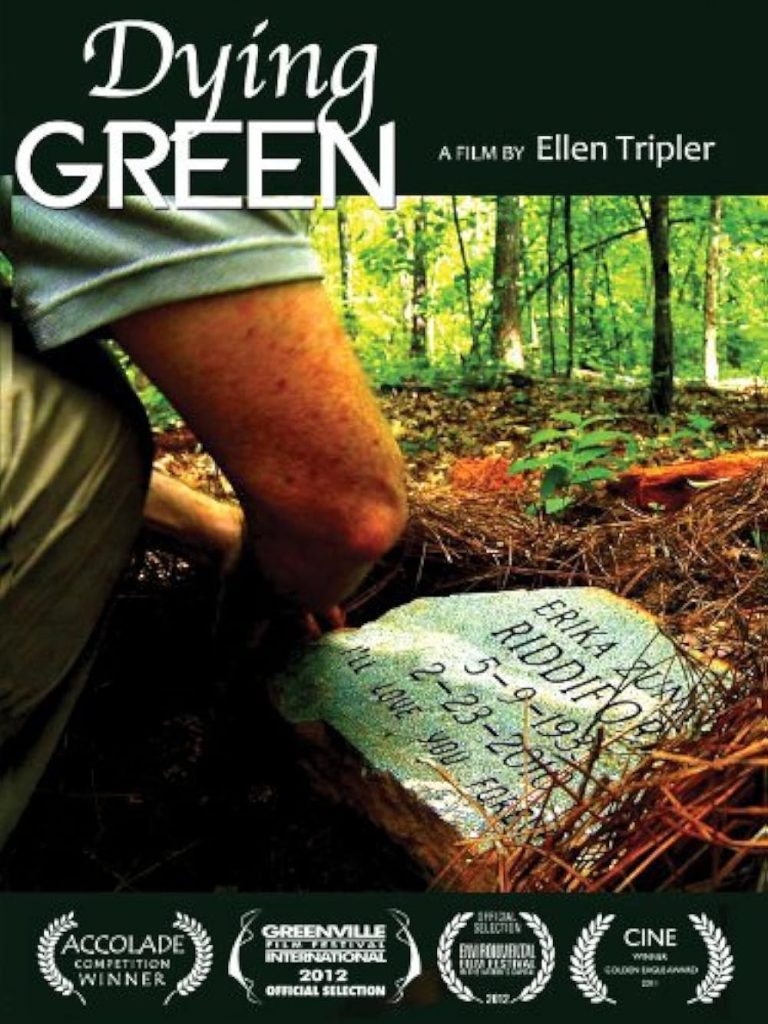
DYING GREEN (2012) is a documentary set in the foothills of the Appalachians. This film explores one man’s vision of using green burials to conserve land.
Watch on TUBI [00:24:00]
IMDB SYNOPSIS: Have you chosen to live a greener life? One man has and he has taken it one step further, he not only wants to live green but he wants die green as well and is helping others do the same. Dying Green, a short documentary set in the foothills of the Appalachians, explores one man’s vision of using green burials to conserve land. Dr. Billy Campell, the town’s only physician and his efforts have radically changed our understanding of burials in the United States. Dr. Billy Campbell’s dream is to conserve one million acres of land. This film focuses on the revolutionary idea of using our own death to fund land conservation and create wildlife preserves.
Departures
A newly unemployed cellist takes a job preparing the dead for funerals (2008). Winner of the Best Foreign Language Film at the 2009 Oscars.
IMDB rating: 8/10
Duration: 2:10:48
IMDB SYNOPSIS: “Daigo Kobayashi is a devoted cellist in an orchestra that has just been dissolved and now finds himself without a job. Daigo decides to move back to his old hometown with his wife to look for work and start over. He answers a classified ad entitled “Departures” thinking it is an advertisement for a travel agency only to discover that the job is actually for a “Nokanshi” or “encoffineer,” a funeral professional who prepares deceased bodies for burial and entry into the next life. While his wife and others despise the job, Daigo takes a certain pride in his work and begins to perfect the art of “Nokanshi,” acting as a gentle gatekeeper between life and death, between the departed and the family of the departed. The film follows his profound and sometimes comical journey with death as he uncovers the wonder, joy and meaning of life and living.”
Website: https://www.departures-themovie.com/
Love In Our Own Time
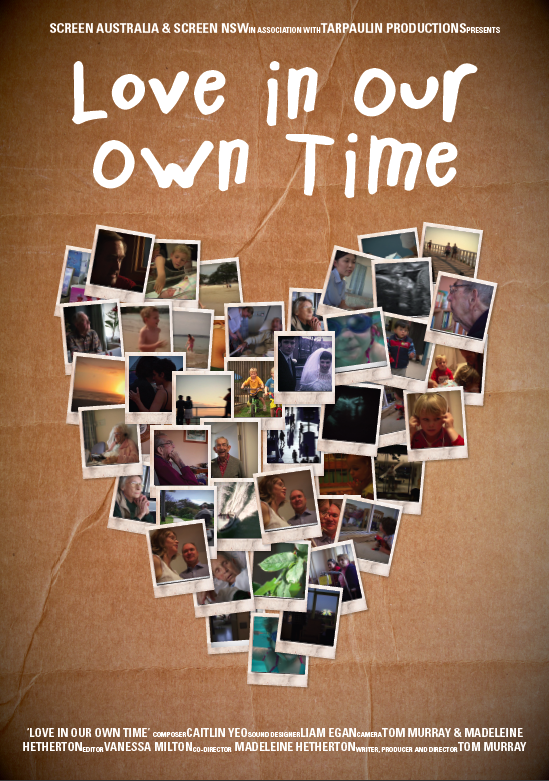
LOVE IN OUR OWN TIME (2011) is a documentary about the extraordinariness of ordinary life, and visits those moments both simple and sublime that compose the lives we lead.
IMDB rating: 8.5/10
Buy DVD [0:93:00]
IMDB SYNOPSIS: LOVE IN OUR OWN TIME is a documentary on the big things in life: birth, love, and death. Holding a 21st century mirror to who we are, the film follows ordinary Australians, bearing witness to lives beginning and ending, and capturing moments, both simple and sublime, that compose the lives we lead. This is a journey to the heart of what it is to be human, giving us pause to reflect on the lives we lead. Following seven ordinary Australian families we travel the length and breadth of human experience and bear witness to lives both beginning and ending.
Website: https://loveinourowntime.com/
Zen and the Art of Dying
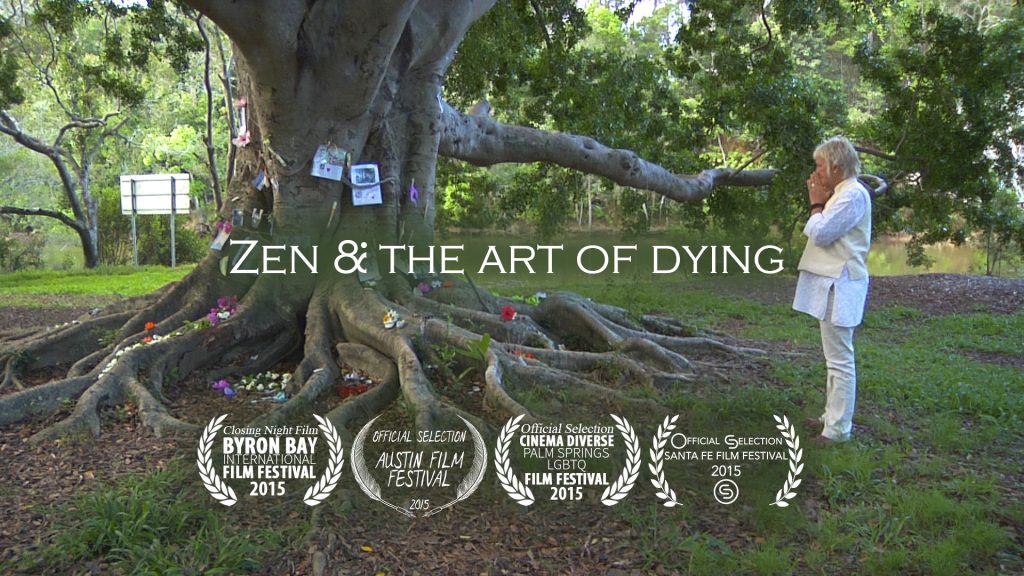
Zen & the Art of Dying (2015) is a portrait of Zenith (Zen) Virago, Australia’s premiere ‘deathwalker’ whose personal and professional experiences challenge our core assumptions about life and dissolve our fears around death.
IMDB rating: 6.5/10
Watch options: [1:14:20]
SYNOPSIS: From her origins as a young mother in the UK, to her present day identity as a lesbian, activist, and self-described deathwalker in the idyllic seaside town of Byron Bay, Australia, Zenith (Zen) Virago’s personal and professional experiences quietly challenge our core assumptions about life and dissolve our fears around death. The most sought-after marriage celebrant in an increasingly commercialized wedding destination town, Zenith is also co-founder of the Australian Natural Death Care Centre, an organization that provides end-of-life decision planning and DIY funeral alternatives to residents of Australia’s North Coast. Zenith’s work models a growing international Natural Death Care Movement that is gaining momentum as Baby Boomers begin to retire and are demanding more personalized, empowered, and meaningful choices around end-of-life matters, just as they did with the natural childbirth movement. Her example, and the willingness of Byron Shire’s citizens to join her cause, invite each of us to reexamine and reclaim a more active role in how we live, love, and die.
Website: https://zenandtheartofdying.com/
List of movies, films, videos at Order of the Good Death
Research
CHOICE research into Funeral Industry
Statistics
- Deaths in Australia (Australian Bureau of Statistics)
- Life expectancy in Australia (Australian Institute of Health and Welfare)
- Leading causes of death in Australia (Australian Institute of Health and Welfare)
Online Articles
Collection of online articles relating to death and dying
With her handmade coffin, Mary Flynn is eager to spark conversations about death and natural burials
PhD & Masters Theses
Buckley, A. (2022). Creative practices for becoming-with death while vitally alive (Doctoral thesis, Western Sydney University, Australia).
Abstract
This dissertation is an emergent philosophical exploration of our socio-political-ecological relationship with death in the context of climate change and mass species extinction. The sudden death of my son led to the initiation of doctoral research in Gawler, South Australia and a creative practice of becoming-with death while vitally alive. The original contribution to knowledge is to theorise, through a post-qualitative lens, my lived experience of facilitating community events that increase death literacy, raise awareness of natural burial and generatively engage people with death through creative practice. Community events include Death Cafes, making memory quilts and the Eco Coffin Project.
Noonan, K. (2018). Renegade stories: A study of deathworkers using social approaches to dying, death and loss in Australia (Doctoral thesis, Western Sydney University, Australia). Retrieved from https://researchdirect.westernsydney.edu.au/islandora/object/uws:48592/datastream/PDF/view
Abstract
In Australia, our population is ageing, our morbidity rates are low, and our health and aged care services are under pressure to modernise. This is a very particular and urgent time to critically examine the care and support available to people who are dying, and their families. It is a period of revival and innovation on the one hand (Swerissen & Ducket, 2014; Walter, 1994) and a space that continues to be dominated by a conservative and largely professionalised death system on the other. Despite the best efforts of the reformers and activists you will meet in this research, end-of-life care and deathcare has not fundamentally changed since the last critical turn, the modern hospice movement that began in the late 1960s. Renegade Stories is a qualitative and critical examination of the lived experiences of 12 deathworkers in Australia who, despite the dominant biomedical paradigm, are guided by a social approach to dying, death and loss. In examining their lived experiences, this thesis embodies the change that is occurring about how people experience death. It does this by asking: What are the stories and experiences of deathworkers who have a social approach to death, dying and loss? How is this deathwork shaped and influenced? And, How are they making a difference? Renegades, like many other activists in the end-of-life and deathcare space are struggling to find ways to have their perspective and experiences heard above the dominant approach toward death and dying. This thesis, in a small way, provides a space for their experiences to be heard.
Interlandi, P. (2012). [A]Dressing death: fashioning garments for the grave (Doctoral thesis, RMIT University, Australia). Retrieved from https://researchrepository.rmit.edu.au/esploro/outputs/doctoral/ADressing-death-fashioning-garments-for-the-grave/9921861391801341
Abstract
This research explores the ways fashion design can directly approach the realities of the dead body, specifically, the moments between death and disintegration, and in doing so, seeks to contribute to the ways in which fashion design can play an important role in the way we approach the dead body and the rituals surrounding death. Fashion designers largely cater to living bodies. While there has been an increasing use of death related imagery within the fashion field, most notably in the area of advertising and digital media, this is vastly different from approaching the actuality of ‘the dead.’ While the dead body may be absent of life, it becomes part of a series of cultural, material, emotional, and ethical processes that have been largely neglected by fashion design. Generally, the dead body is approached by dressing and wrapping to cover and shield it (and the living) from its vulnerable, transient state. A key aim of the research has been to seek alternative ways to dress the dead body – both through the design of actual purpose-built garments, and in the way the act of dressing the body with these garments can affect our approach to death and the dead body. The research has been undertaken through a series of creative projects involving fashioned processes and garments. Projects have been produced and have evolved in response to the moments between death and disintegration in three primary ways. Firstly, through the design of garments that literally, dissolve as a way to explore the disintegration of the garment as an aesthetic process. Secondly, it is examined through exploring processes of growth and formation in the earth, where plant roots are grown in body moulds. The third body of work explores the realities of decomposition, engaging directly with the visceral nature of ‘disgust,’ through the dressing, burial and exhumation of pig bodies, done in the context of a scientific experiment. Ultimately, this research becomes the beginning of a new type of fashion practice, catering to the care and dressing of the dead. It makes contributions to ways in which we might deal with dead bodies, and to thinking about the potential role of fashion design as the fashioning of processes, rather than simply the design of garments.
West, H. (2016). Remnants of the dead and demands on the living: Enduring grief through artistic endeavour (Master thesis, Charles Darwin University, Australia). Retrieved from https://cdu.academia.edu/HayleyWest
Abstract
In this project I explore the realities of grief through personal experiences and artistic practice. My research considers how remaining objects and memories of the deceased are interconnected and can be re-imagined as artworks to deepen commemoration. It also explores an acceptance of the inevitability of one’s own death, and considers impacts on loved ones still living. The result of this project is a moving image work and a collection of sculptures. I also propose the use of artificial grottoes as spaces that invite viewers to contemplate loss of life and confront their own mortality. Contextual research draws on the work of contemporary artists dealing with death. The video works of Sophie Calle and Araya Rasdjarmrearnsook are particularly discussed in relation to my moving image work, 1 million years. When recounting the death of my brother-in-law, I consider an installation work by Tracy Emin and reflect on a photographic series by Anne Noble. Sculptural works by Mike Kelley and Callum Morton are examined in relation to artificial grottoes as devotional spaces. My art practice has also been informed by Martin Heidegger’s philosophical notion of Dasein as a way of accepting all the possibilities in life, including death. Progressive discourse regarding death, including alternative funeral rites and ways of dying, is still in its infancy in Western societies. However, talking about death is increasingly becoming less taboo. Over the course of this project, a methodological opportunity for information sharing at Death Café events has been invaluable. While questioning societal concerns with death, this project acknowledges that the conversation currently rests in a transitional space anticipating further development. My final series of works, together with this exegesis, contributes to this conversation on death and memorial through the medium of visual art.
Journal Articles
Noonan, K., Horsfall, D., Leonard, R., & Rosenberg, J. (2016). Developing death literacy. Progress in Palliative Care, 24(1), 31-35. Retrieved from https://www.tandfonline.com/doi/epdf/10.1080/09699260.2015.1103498
Abstract
Death literacy is defined as a set of knowledge and skills that make it possible to gain access to understand and act upon end-of-life and death care options. People, and communities, with high levels of death literacy have context-specific knowledge about the death system and the ability to put that knowledge into practice. Positioned within a public health framework, death literacy is considered an outcome of people’s experiences of and learnings about, death and dying. Death literacy also appears to be a resource that individuals and communities can use for their own benefit strengthening their capacity for future caring. This purpose of this paper is to explore the concept of death literacy using the evidence from a 6-year research project. We do this by examining how it corresponds to, and differs from, existing concepts and practices such as death education, health literacy, and community development. Our aim is to introduce new thinking into public health approaches to palliative care, offer practice development pathways in this arena and propose that death literacy offers a useful conceptual framework for both describing and understanding the outcomes of a public health approach to palliative care.
Horsfall, D., Noonan, K., & Leonard, R. (2011). Bringing our Dying Home. Retrieved from here
Abstract
Overwhelmingly people’s desire is to experience dying and/or death at home, suggesting an urgent need to examine community-based approaches to end-of-life care. his study does just that as we shift the attention from the needs of the terminally ill person and carer to the wider, informal
caring community. his report documents the “Bringing our dying home: Creating community at end of life” research project, a two-year qualitative project undertaken by the Social Justice Social Change Research Group (UWS) in conjunction with HOME Hospice and Cancer Council NSW.
Chapters/Books
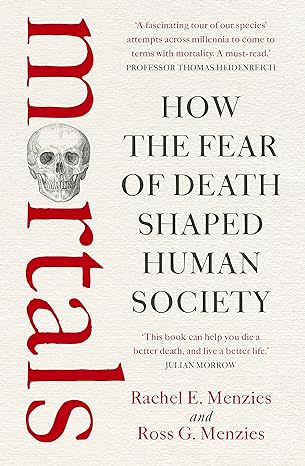
Menzies, R., & Menzies, R. (2021). Mortals: How the fear of death shaped human society. Allen & Unwin.
Abstract
The ground-breaking book that uncovers how our fear of death is the hidden driver of most of humankind’s endeavours. The human mind can grapple with the future, visualising and calculating solutions to complex problems, giving us tremendous advantages over other species throughout our evolution. However, this capability comes with a curse. By five to ten years of age, all humans know where they are heading: to the grave. In Mortals, Rachel Menzies and Ross Menzies, both acclaimed psychologists whose life’s work has focused on death anxiety, examine all the major human responses to death across history. From the development of religious systems denying the finality of death, to ‘immortality projects’ involving enduring art, architecture and literature, some of the consequences of our fear of death have been glorious while others have been destructive, leading to global conflicts and genocide. Looking forward, Mortals hypothesises that worse could be to come-our unconscious dread of death has led to rampant consumerism and overpopulation, driving the global warming and pandemic crises that now threaten our very existence. In a terrible irony, Homo sapiens may ultimately be destroyed by our knowledge of our own mortality.
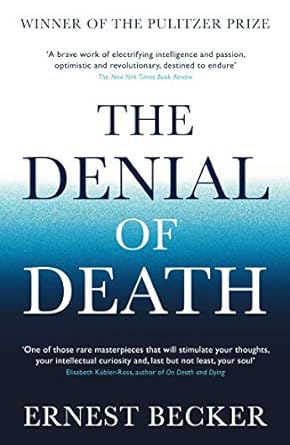
Becker, E. (1997). The denial of death. Simon and Schuster.
Abstract
Ernest Becker tackles our relationship to mortality and searches for alternative ways to live. Winner of the Pulitzer prize in 1974 and the culmination of a life’s work, The Denial of Death is Ernest Becker’s brilliant and impassioned answer to the ‘why’ of human existence. In bold contrast to the predominant Freudian school of thought, Becker tackles the problem of the vital lie – man’s refusal to acknowledge his own mortality. The book argues that human civilisation is a defence against the knowledge that we are mortal beings. Becker states that humans live in both the physical world and a symbolic world of meaning, which is where our ‘immortality project’ resides. We create in order to become immortal – to become part of something we believe will last forever. In this way we hope to give our lives meaning. In The Denial of Death, Becker sheds new light on the nature of humanity and issues a call to life and its living that still resonates decades after it was written.
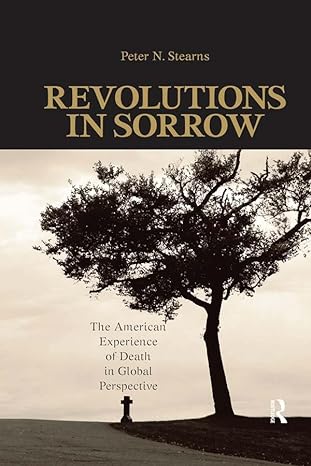
Stearns, P. N. (2015). Revolutions in sorrow: The American experience of death in global perspective. Routledge.
Abstract
Huge changes have occurred in both the physical facts of death and in the cultural modes that guide our reactions to it. These changes also affect policy issues ranging from punishments for crimes to birth control to the conduct of war. This book explores the impacts of these changes upon both personal experience and social policy and places developments in the United States in an international comparative context.The book opens with an overview of traditional patterns of death and related cultural practices in agricultural civilizations, along with changes brought by Christianity. Attitudes and practices in colonial America are traced and compared to other societies. After setting this historical context, the book examines the immense changes that occurred in the nineteenth century: new cultural reactions to death, expressed in changing death rituals and cemetery design; the unprecedented reduction later in the century of infant mortality; the relocation of death from home to hospital; the redefinition of death as a taboo subject. The book’s final segment relates changes in death culture and experience to the contentious debates of the twentieth century over the death penalty, abortion, and the practice of war. The book is designed to use historical and comparative perspectives to stimulate debate about the strengths and weaknesses of cultural practices and policies related to death.
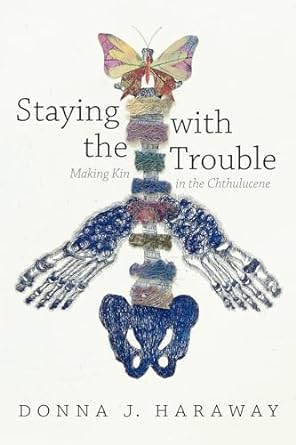
Haraway, D. J. (2016). Staying with the trouble: Making kin in the Chthulucene. Duke University Press.
Abstract
In the midst of spiraling ecological devastation, multispecies feminist theorist Donna J. Haraway offers provocative new ways to reconfigure our relations to the earth and all its inhabitants. She eschews referring to our current epoch as the Anthropocene, preferring to conceptualize it as what she calls the Chthulucene, as it more aptly and fully describes our epoch as one in which the human and nonhuman are inextricably linked in tentacular practices. The Chthulucene, Haraway explains, requires sym-poiesis, or making-with, rather than auto-poiesis, or self-making. Learning to stay with the trouble of living and dying together on a damaged earth will prove more conducive to the kind of thinking that would provide the means to building more livable futures. Theoretically and methodologically driven by the signifier SF-string figures, science fact, science fiction, speculative feminism, speculative fabulation, so far-Staying with the Trouble further cements Haraway’s reputation as one of the most daring and original thinkers of our time.
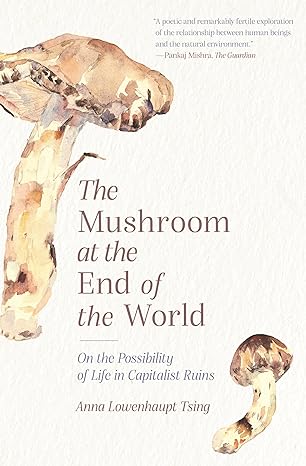
Tsing, A. L. (2015). The mushroom at the end of the world: On the possibility of life in capitalist ruins. Princeton University Press.
Abstract
Matsutake is the most valuable mushroom in the world-and a weed that grows in human-disturbed forests across the Northern Hemisphere. Anna Lowenhaupt Tsing’s account of these sought-after fungi offers insights into areas far beyond just mushrooms and addresses a crucial question: What manages to live in the ruins we have made? The Mushroom at the End of the World explores the unexpected corners of matsutake commerce, where we encounter Japanese gourmets, capitalist traders, Hmong jungle fighters, Finnish nature guides, and more. These companions lead us into fungal ecologies and forest histories to better understand the promise of cohabitation in a time of massive human devastation. The Mushroom at the End of the World delves into the relationship between capitalist destruction and collaborative survival within multispecies landscapes, the prerequisite for continuing life on earth.
Conferences
Australian organisations
Australian Home Funeral Alliance
The Australian Home Funeral Alliance (AHFA) is the national peak body for home funeral practitioners and advocates, dedicated to the empowerment of families and communities through the provision of ethical and inclusive education, information and advocacy for home funerals and family directed death care options in Australia.
Australian Death Studies Society
The Australian Death Studies Society (ADSS) aims to foster the development of high quality scholarship about dying, death, and body disposal within Australia.
Groundswell Project
The Groundswell Project works with individuals, organisations and communities to improve how people in Australia die, care and grieve.
We run educational workshops, develop innovative programs and advocate for a better end of life experience for all.
Death Literacy Institute
The Death Literacy Institute works across systems – people, places, and organisations to embed skills, experience, actions, and knowledge that create and support the development of end-of-life, grief and death literacy. We design and develop training and professional development for organisations and community groups and conduct research and evaluation. Death literacy helps us understand and act upon our end-of-life and deathcare options.
DeathTech
The DeathTech Research Team is a group of anthropologists, social scientists and human-computer interaction specialists based at the University of Melbourne and the University of Oxford. The team have been studying questions at the intersection of death, technology, and society for more than a decade.
Natural Death Advocacy Network
NDAN is an acronym for Natural Death Advocacy Network. We are a growing Australian network and advocacy partnership of community facilitators, professionals, activists and educators working to enrich the experience of dying and death.
Our Vision
Our aim is to create an informative, innovative and transparent organization advocating holistic approaches to dying and death through independent research and action. Our main areas of advocacy include death education, funeral planning, family lead funeral care, natural burial and bereavement care.
Our Mission
We provide individuals, families and communities with professional, creative and informed assistance to choose meaningful, humane and ecological pathways at the end of life.
Advance Care Planning Australia
Advance care planning involves planning for your future health care. It enables you to make some decisions now about the health care you would or would not like to receive if you were to become seriously ill and unable to communicate your preferences or make treatment decisions.
Advance care planning helps to ensure your loved ones and health providers know what matters most to you and respect your treatment preferences.
Palliative Care Australia
Palliative Care Australia is the national peak body for palliative care.
Heartfelt Australia
Heartfelt is a volunteer organisation of professional photographers dedicated to giving the gift of photographic memories to families who have experienced stillbirth or have children with serious or life threatening illness. Heartfelt is dedicated to providing this gift in a caring and compassionate manner, with all services free of charge.
CareSearch
CareSearch: Palliative care evidence and tools for health professionals and information about death and dying for the whole community
Research Centre for Palliative Care, Death, and Dying (RePaDD)
Our mission at the Research Centre for Palliative Care, Death, and Dying (RePaDD) is to make a difference to care at the end of life. We do this by examining the issues and challenges experienced by people living with a life-limiting illness, their carers, and the health and care professionals supporting them.
We develop innovative solutions and advance the knowledge and evidence in palliative care to improve society’s experience of death and dying.
Our experience in delivering successful national palliative care projects, and our strong collaboration with multidisciplinary experts and organisations, strengthen our capability in conducting world class research and in achieving impact.
Go Gentle Australia
Go Gentle empowers people to choose the end-of-life care that is right for them, including the option of voluntary assisted dying. We amplify the voices of individuals, families and health professionals to ensure their views are heard and understood.
Compassionate Communities
Compassionate Communities Network aims to promote and integrate social approaches to dying, death and bereavement in the everyday life of individuals and communities.
The Groundswell Project page on Compassionate Communities with free downloadable resources
Overseas organisations
Centre for Death & Society – University of Bath, UK
CDAS is an internationally recognised research centre focusing on the interdisciplinary social aspects of death, dying and bereavement. The Centre for Death & Society provides a forum for our community of researchers and practitioners to share their expertise in death, dying and bereavement.
Dying Matters – UK
Dying Matters is a campaign created by Hospice UK campaign to create an open culture in which we’re comfortable talking about death, dying and grief.
The Order of the Good Death – UK
Order of the Good Death: Building a meaningful, eco-friendly and equitable end-of-life
Pushing Up Daisies Todmorden – UK
Pushing Up Daisies Todmorden: Pushing Up Daisies is a project in Todmorden UK aiming to enable community-led conversations around death, dying and bereavement.
Recompose – USA
Recompose is a full-service funeral home specializing in human composting
Legal stuff
There is such a lot to do when a living person becomes a dead body. Each state in Australia has its own rules for recording a person’s wishes for when they can no longer speak for themselves, defining death, organ donation, donating a body to science, voluntary assisted dying, investigating the cause of death; preparing, transporting and disposing (what a terrible word to use!) of a body and certifying and registering the death. Links to a lot of that legislation is listed below by state.
The only bit of Federal legislation that covers the whole of Australia is the Environment Protection (Sea Dumping) Act 1981 which governs the process to bury a body at sea. Additional approvals may be required under relevant state or territory law.
Also see: Advance Care Planning – Create your plan by state
Also see: Cross-border issues with enduring powers of attorney
NSW
Advance Care Directives: In NSW, there are no statutory Advance Care Directives. Only common law advance care directives exist and are legally binding.
Powers of Attorney Act 2003 for both general and enduring powers of attorney
Human Tissue Act 1983 provides a definition of death and deals with organ donation
Voluntary Assisted Dying Act 2022 regulates access to voluntary assisted dying
Anatomy Act 1977 regulates the donation of bodies to science
Coroner’s Act 2009 controls the investigation of the death
Public Health Act 2010 and Regulation 2022 describe the logistics of preparing, transporting and disposing of bodies
Cemeteries and Crematoria Act 2013 and Regulation 2022 ensure the dignified and respectful treatment of the dead bodies
Local Government Act 1993 controls burials
Births, Deaths and Marriages Registration Act 1995 deals with the certification and registration of death
SA
Advance Care Directives Act 2013 to enable a person to make decisions and give directions in relation to their future health care and accommodation. Both statutory and common law Advance Care Directives exist and are legally binding.
Powers of Attorney and Agency Act 1984 for both general and enduring powers of attorney
Death (Definition) Act 1983 defines death in SA
Voluntary Assisted Dying Act 2021 regulates access to voluntary assisted dying
Transplantation and Anatomy Act 1983 regulates organ donation and donation of bodies to science
Coroner’s Act 2003 controls the investigation of the death
Burial and Cremations Act 2013 and Regulations 2014 provides for the identification, handling, storage, transport, disposal
and memorialisation of human remains and management of cemeteries and natural burial grounds
Burial on private property is a local Council matter – Fact sheet by SA Heath
Procedures for exhumation – Fact sheet by SA Health
Births, Deaths and Marriages Registration Act 1996 deals with the certification and registration of death
QLD
Only Statutory Advance Care Directives are legally binding in Queensland.
Powers of Attorney Act 1998 for both general and enduring powers of attorney
Voluntary Assisted Dying Act 1991 regulates access to voluntary assisted dying
Transplantation and Anatomy Act 1979 defines death and regulates organ donation and donation of bodies to science
Coroner’s Act 2003 controls the investigation of the death
Cremations Act 2003 and Burial Assistance Act 1965 provides for the identification, handling, storage, transport, disposal
and memorialisation of human remains and management of cemeteries and natural burial grounds
Births, Deaths and Marriages Registration Act 2003 deals with the certification and registration of death
VIC
Medical Treatment Planning and Decision Act 2016 allows Victorians to write a legally binding Advance Care Directive, appoint a medical treatment decision maker and appoint a support person. Both statutory and common law Advance Care Directives exist and are legally binding.
Powers of Attorney Act 2014 for both general and enduring powers of attorney
Human Tissues Act 1982 defines death and regulates organ donation and donation of bodies to science
Voluntary Assisted Dying Act 2017 and Regulations 2018 regulate access to voluntary assisted dying
Coroner’s Act 2008 controls the investigation of the death
Cemeteries and Crematoria Act 2003 and Regulations 2005 provide for the identification, handling, storage, transport, disposal
and memorialisation of human remains and management of cemeteries and natural burial grounds
Births, Deaths and Marriages Registration Act 1996 deals with the certification and registration of death
WA
Advance Care Directives: Both statutory and common law Advance Care Directives exist and are legally binding.
Powers of Attorney Act 1986 for both general and enduring powers of attorney
Death Definition: WA is the only state that does not have a statutory definition of death
Voluntary Assisted Dying Act 2019 regulates access to voluntary assisted dying
Human Tissue and Transplantation Act 1982 regulates organ donation and donation of bodies to science
Coroner’s Act 1986 controls the investigation of the death
Cemeteries Act 1986 governs cemetery management and burials
Cremations Act 1929 and Cremations Regulations 1954 specify the legal steps to obtain an approval to cremate
Births, Deaths and Marriages Registration Act 1998 deals with the certification and registration of death
TAS
Guardianship and Administration Act 1995 governs Advance Care Directives
Powers of Attorney Act 2000 for both general and enduring powers of attorney
End-of-Life Choices (Voluntary Assisted Dying) Act 2021 regulates access to voluntary assisted dying
Human Tissue Act 1985 regulates organ donation and donation of bodies to science
Coroner’s Act 1985 controls the investigation of the death
Burial and Cremation Act 2019 and Burial and Cremation Regulations 2015 provides for the handling, storage, transport, disposal
and memorialisation of human remains and management of cemeteries and public health and public safety standards for the funeral industry
Births, Deaths and Marriages Registration Act 1999 deals with the certification and registration of death
NT
Advance Care Directives: Both statutory and common law advance care directives exist and are legally binding
Powers of Attorney Act 1980 for both general and enduring powers of attorney
Restoring Territory Rights Act 2022 regulates access to voluntary assisted dying
Transplantation and Anatomy Act 1979 regulates organ donation and donation of bodies to science
Coroner’s Act 1993 controls the investigation of the death
Burial and Cremation Act 2022 and Regulations 2022
Guideline for the management of human remains provides guidance for the identification, transport, storage and exhumation of human remains
Births, Deaths and Marriages Registration Act 1996 deals with the certification and registration of death
ACT
Advance Care Directives: Both statutory and common law Advance Care Directives exist and are legally binding
Powers of Attorney Act 2006 for both general and enduring powers of attorney
Voluntary Assisted Dying: The ACT Government has introduced the Voluntary Assisted Dying Bill 2023 in the Legislative Assembly. The Bill sets out the government’s model to provide eligible Canberrans with the right to make informed end-of-life choices that align with their preferences and values.
Transplantation and Anatomy Act 1978 regulates organ donation and donation of bodies to science
Coroner’s Act 1997 controls the investigation of the death
Cemeteries and Crematoria Act 2020 sets out the legislative framework for burials and cremations in the ACT
Births, Deaths and Marriages Registration Act 1997 deals with the certification and registration of death
Free Downloads
Final Checklist
The Groundswell Project have created a Final Checklist for you to download to help with your end-of-life planning.
Emotional Will
The Groundswell Project have created a Emotional Will guide for you to download to help you start writing your Emotional Will.
Advance Care Directive form by state
Enduring Power of Attorney form by state
- Enduring Power of Attorney form SA
- Enduring Power of Attorney form NSW
- Enduring Power of Attorney form VIC
- Enduring Power of Attorney form TAS
- Enduring Power of Attorney form QLD
- Enduring Power of Attorney form ACT
- Enduring Power of Attorney form WA
- Enduring Power of Attorney form NT now known as Advance Personal Plan
Conversation starter cards
- Aboriginal and Torres Strait Islander Discussion Starter – Working Out What’s Right For You
- What Matters Most for Older Australians
- Working out what’s right for you
“
The Eco Coffin Project highlighted a vast array of topics and gave me a lot of information on a subject that has previously been difficult to talk about. The entire project has been instrumental in giving me the understanding and guidance to make informed decisions and has been an irreplaceable experience.
Kerry Dellar
2021 Eco Coffin Project participant
